Macbitches
Written by Sophie McIntosh
Director: Anna Item
Assistant Director: Ellie McKissick
Scenic Designer: Kira Wiener
Costume Designer: Emma Howson
Lighting Designer: Tyler Motlasz
Props Designer: Steven Belloise
Sound Designer: Kit Gluck Smith
Production Stage Manager: Almarah Urman
Deck Stage Manager: Max Pate
Assistant Stage Manager: Avery Peters
Fight Director: Megan Trageser
Photos by Amy O’Halloran
Featuring Anne Marie Alsobrook, Gaby Canedo, Bella Castillo, Alina Hernandez, and Jolie Lanning
In The Press:
When freshman acting major Hailey unexpectedly scores the coveted role of Lady Macbeth, her upperclassmen rivals immediately invite her over to “celebrate.” As the Fireball and Svedka flow, the young women interrogate their own ambitions as well as the power structures that have shaped their education—and when the night spirals into violent and shocking acts of betrayal, they come to learn that what’s done cannot be undone.

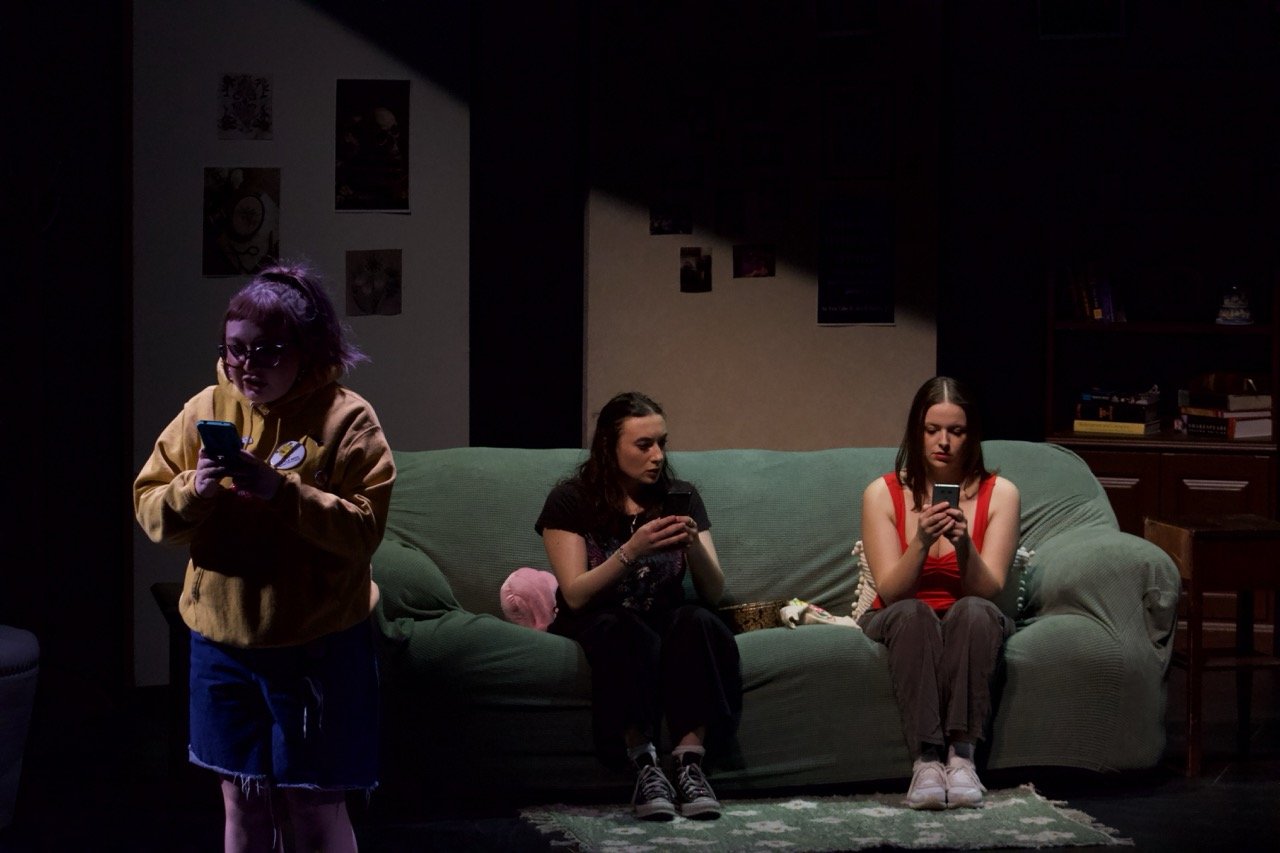

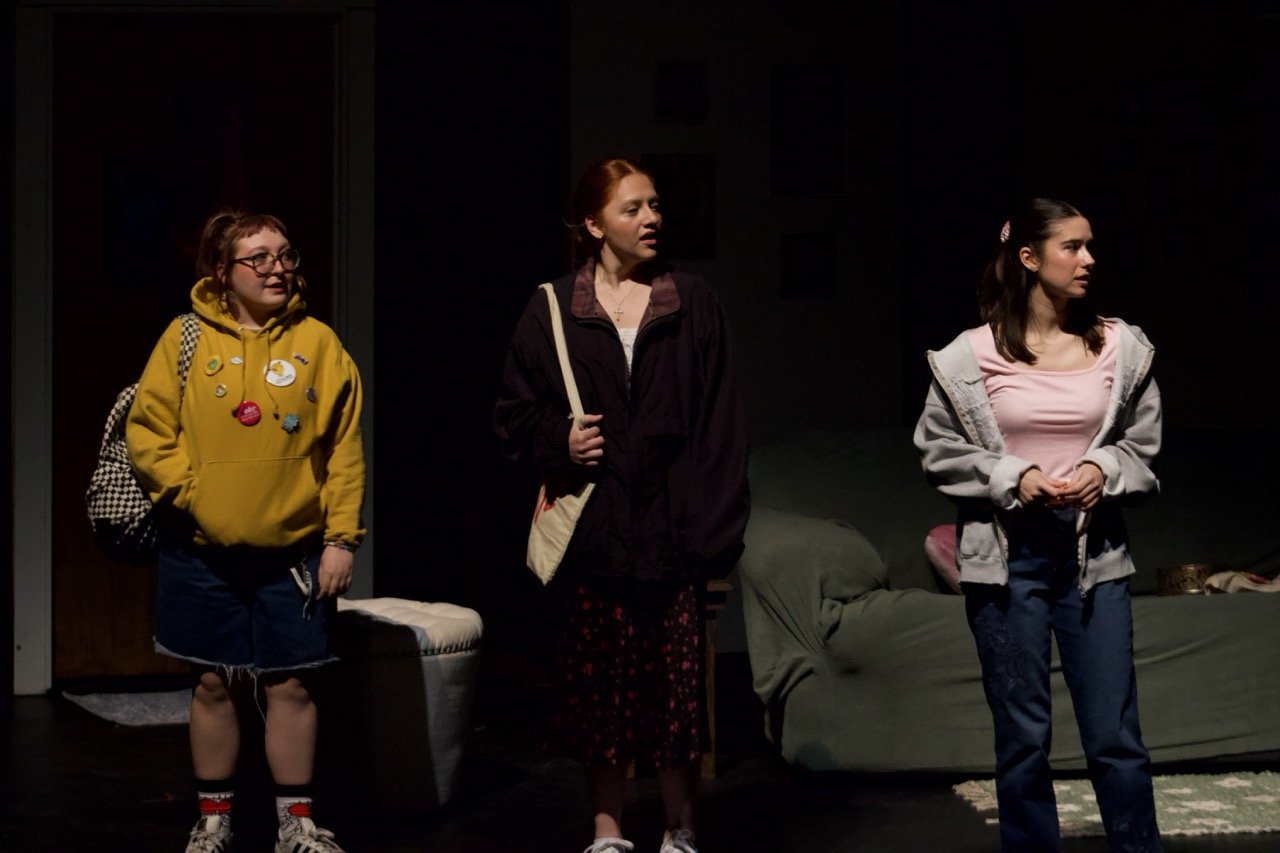
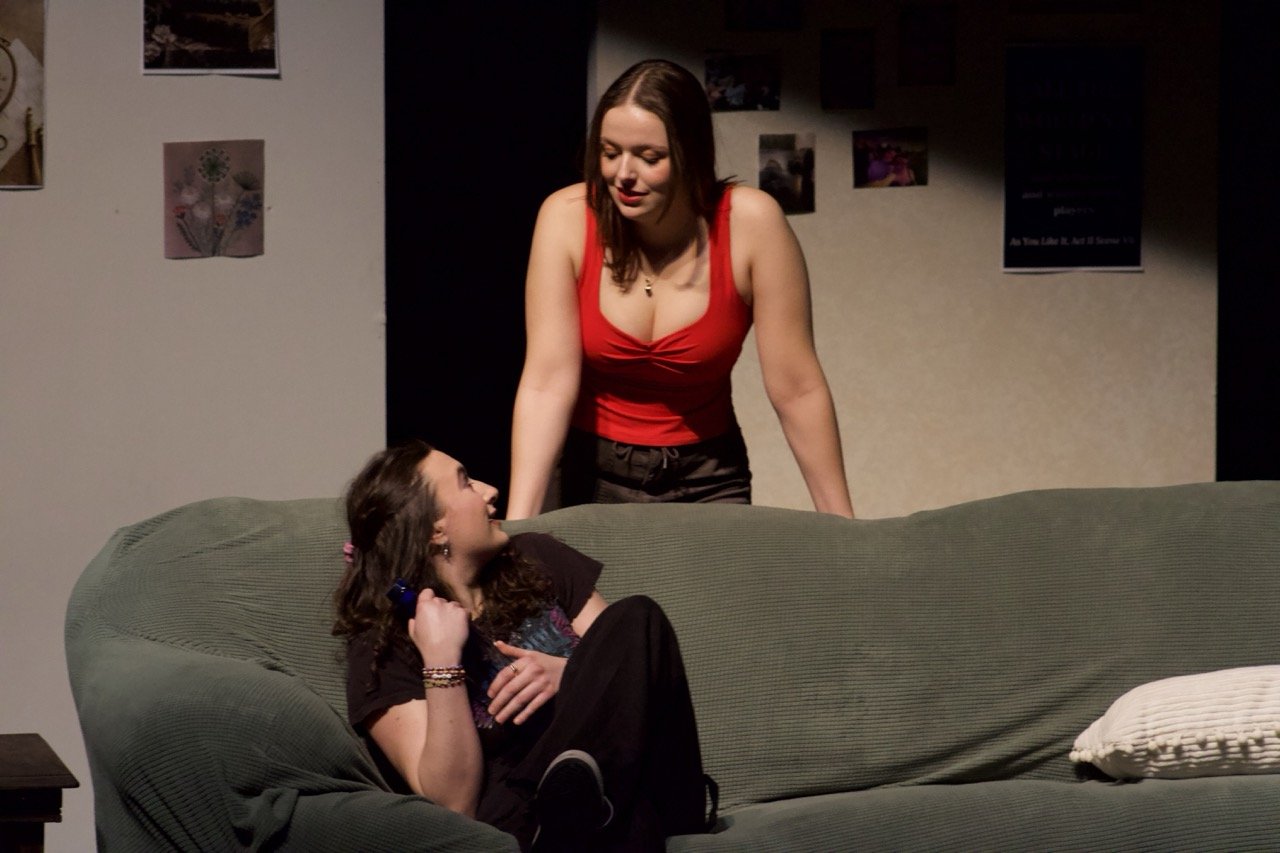
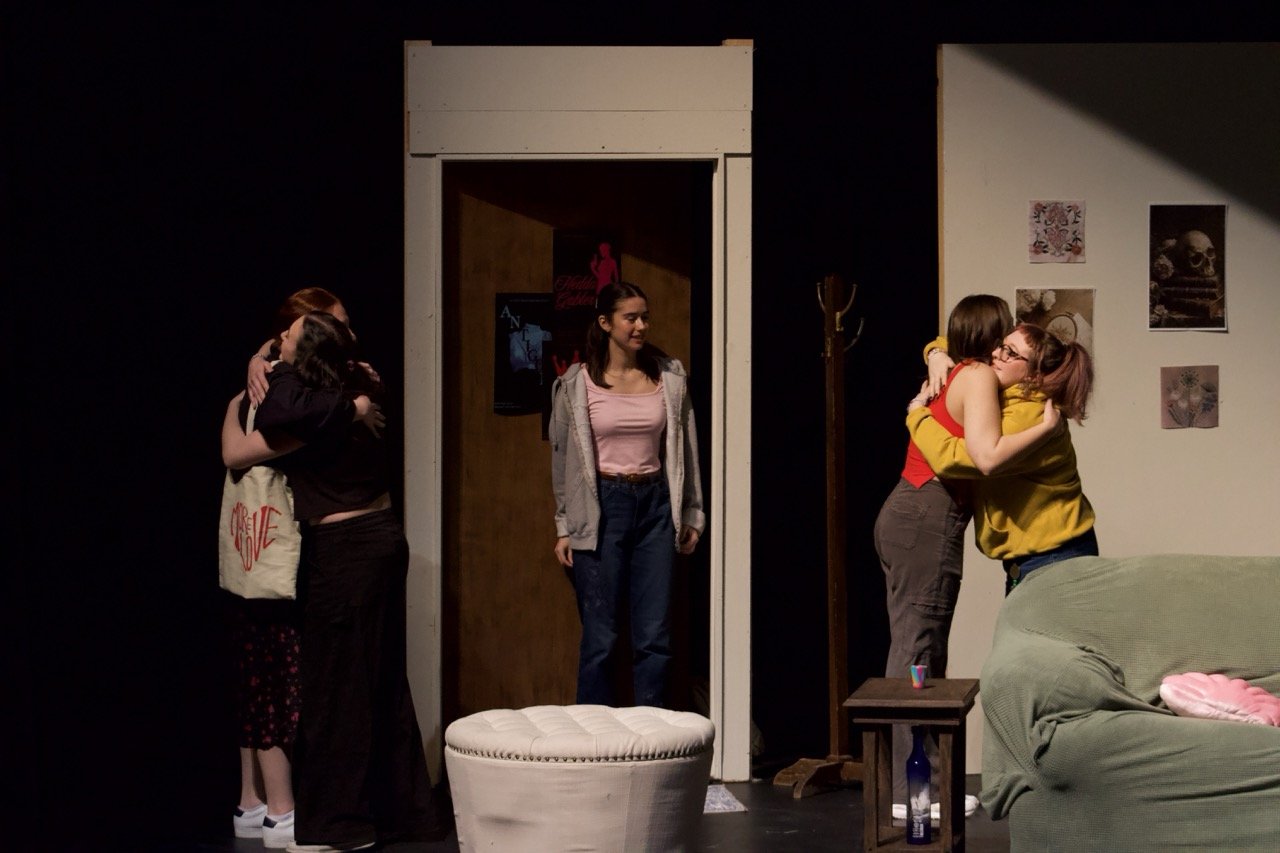
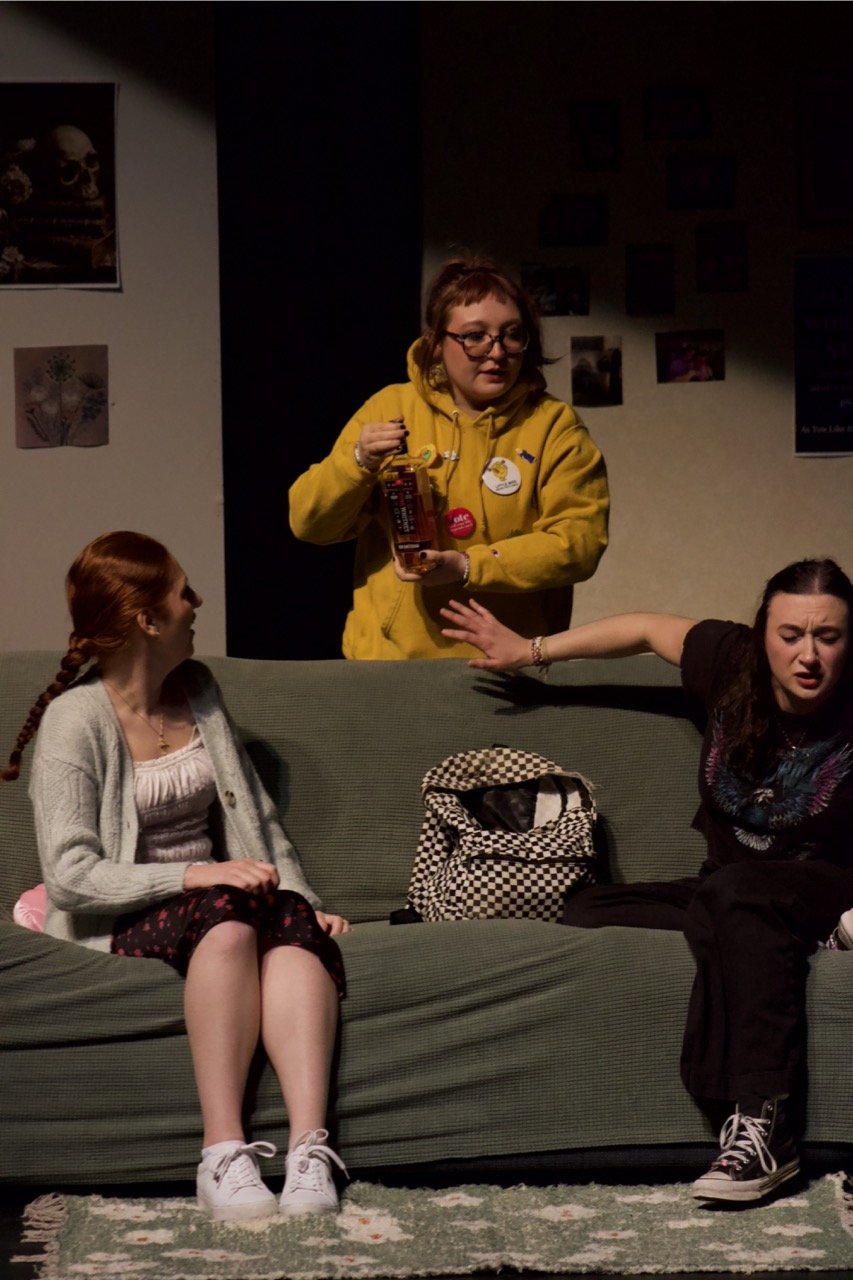
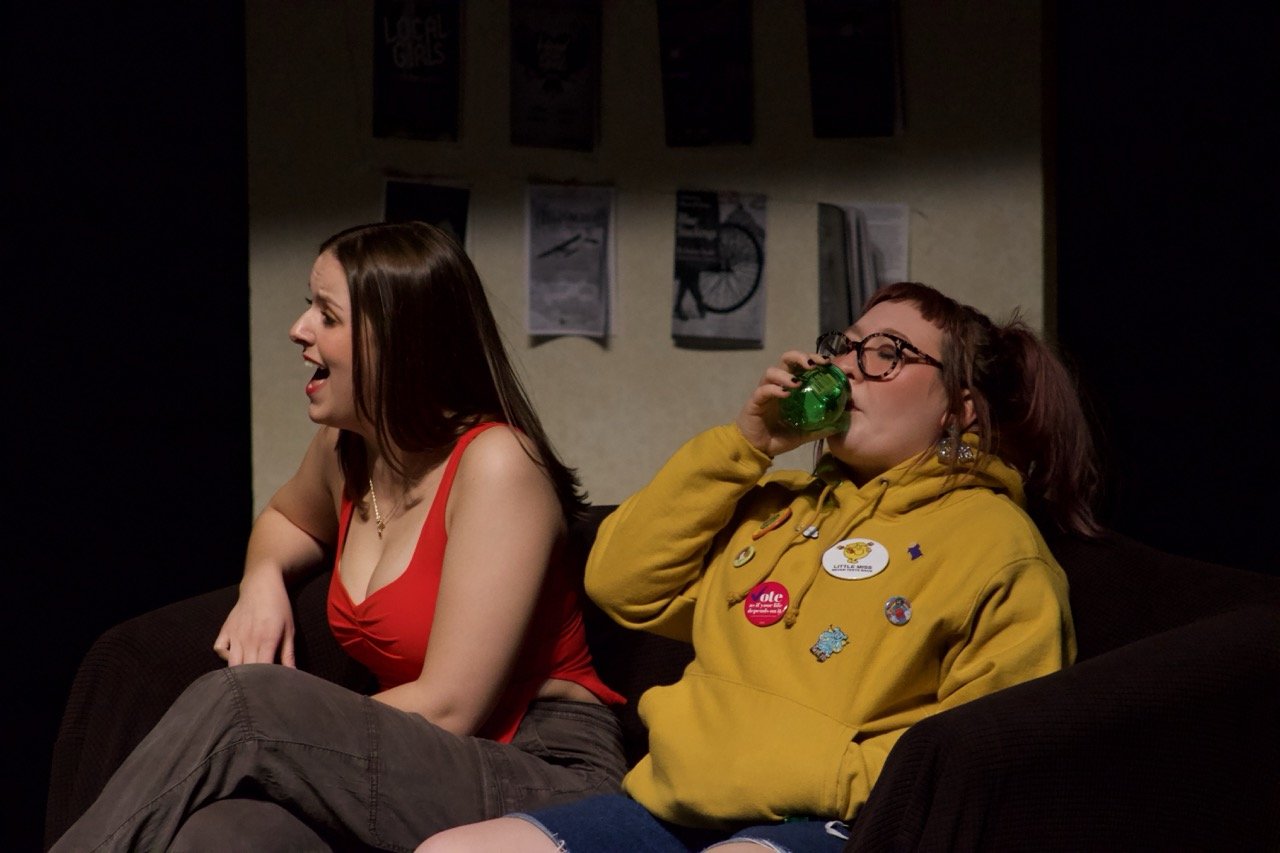
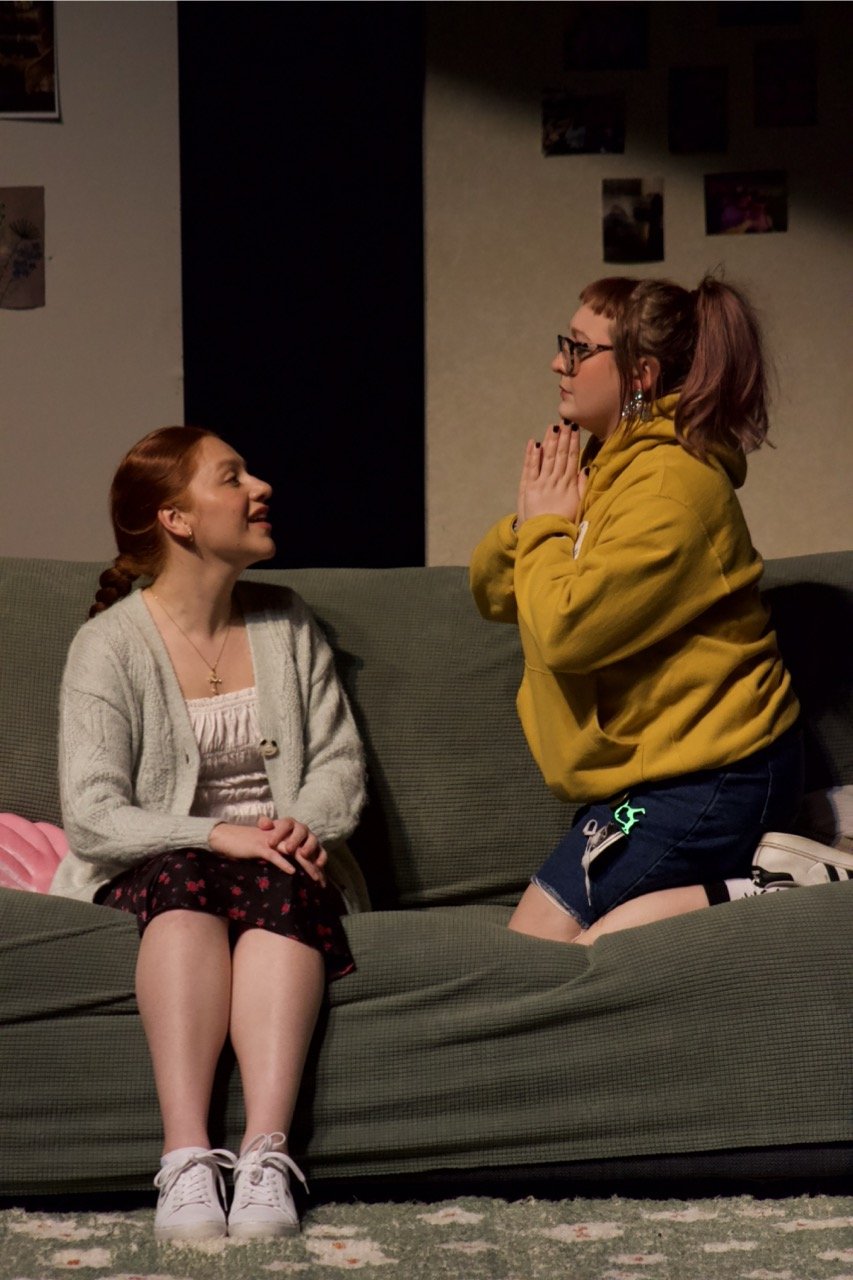
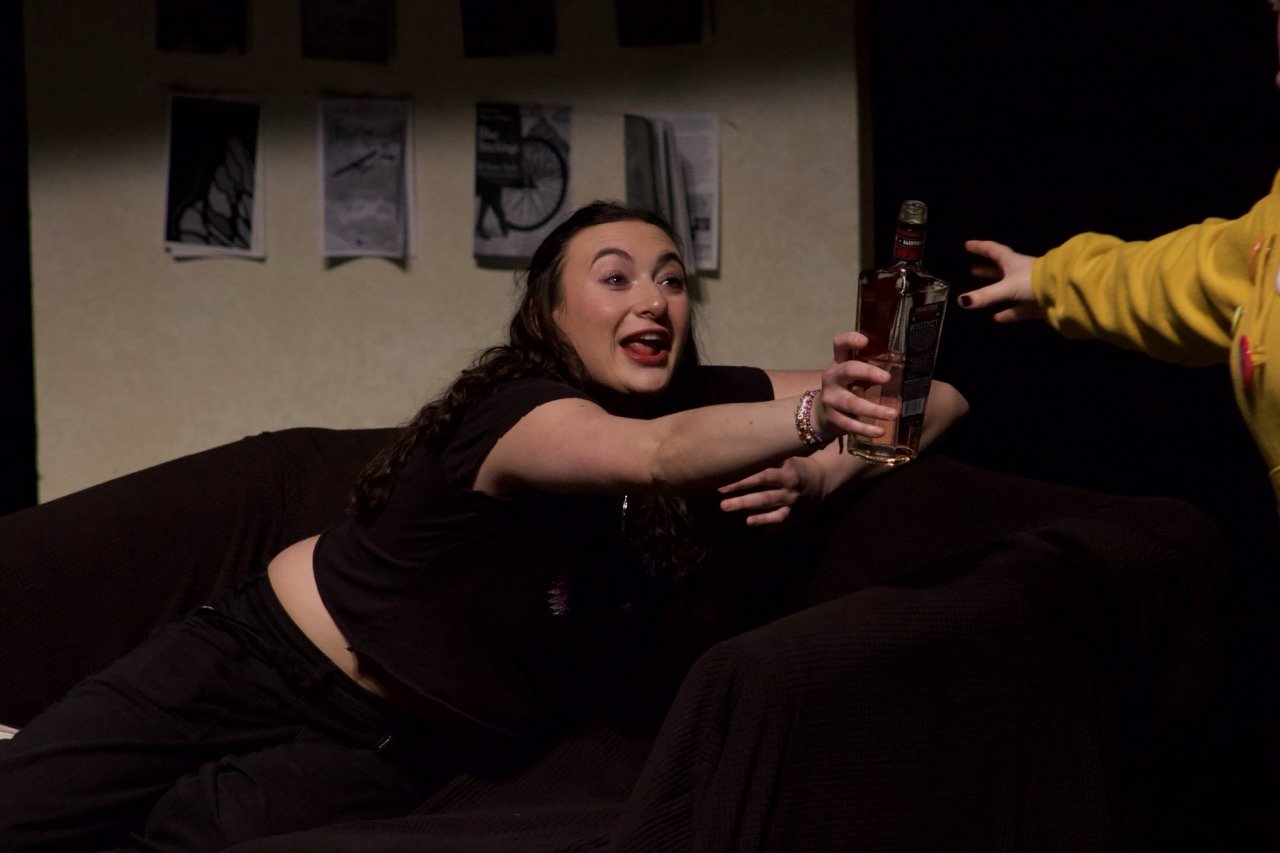
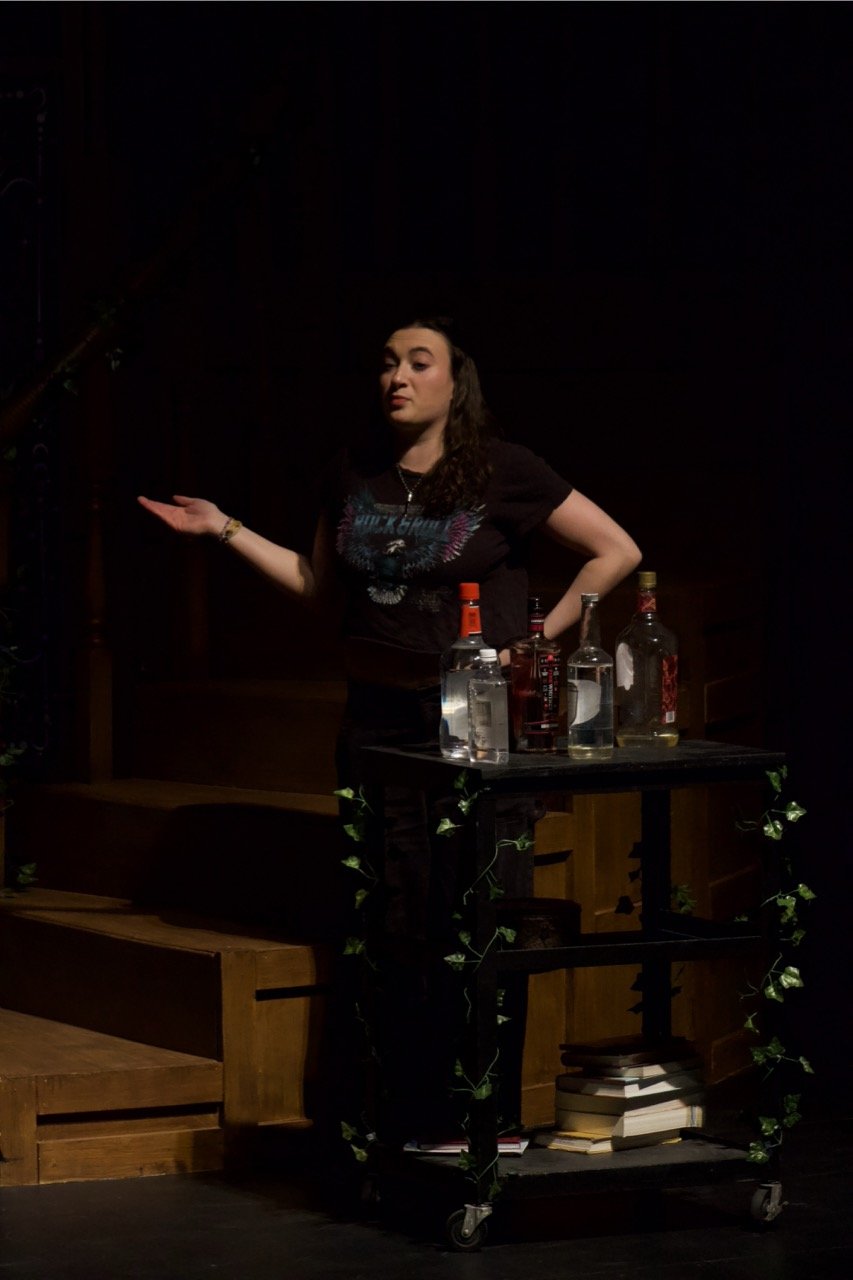
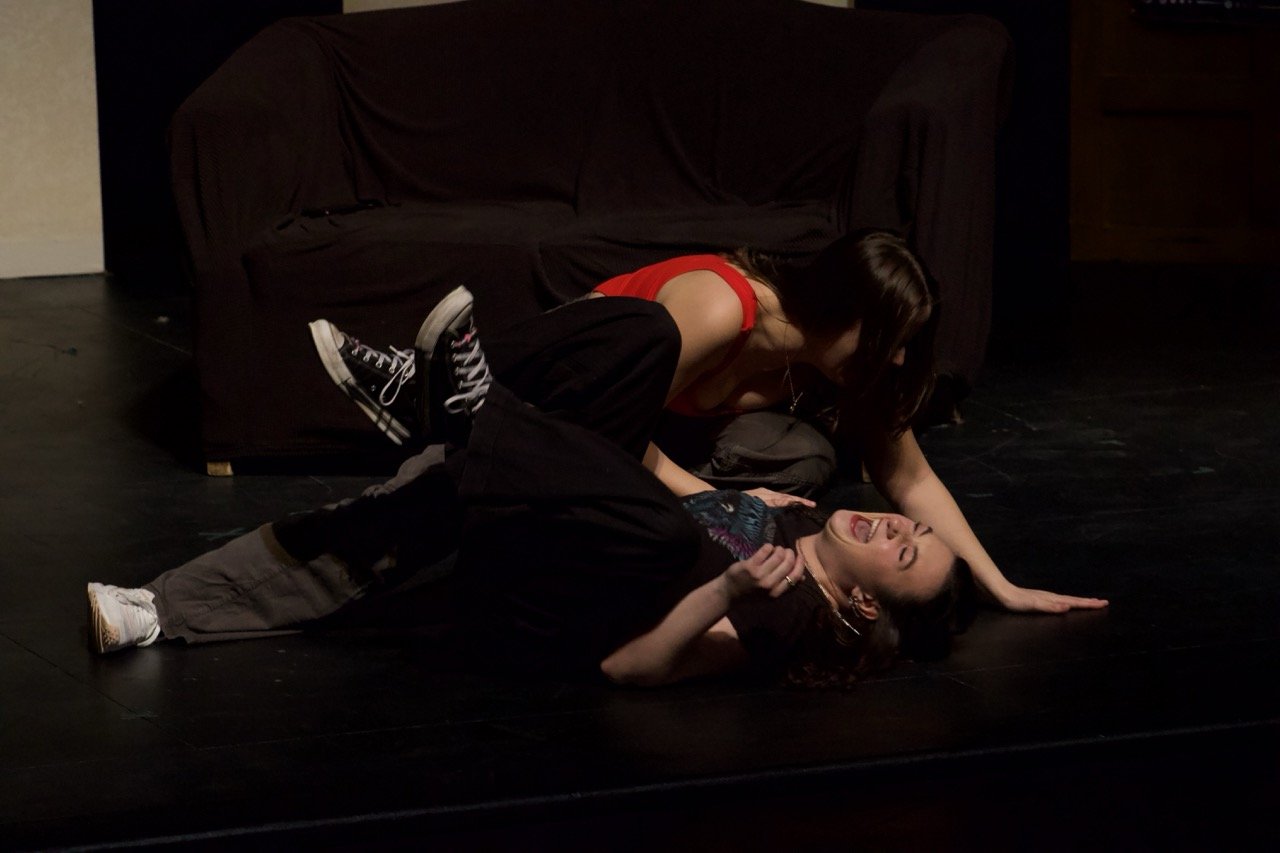
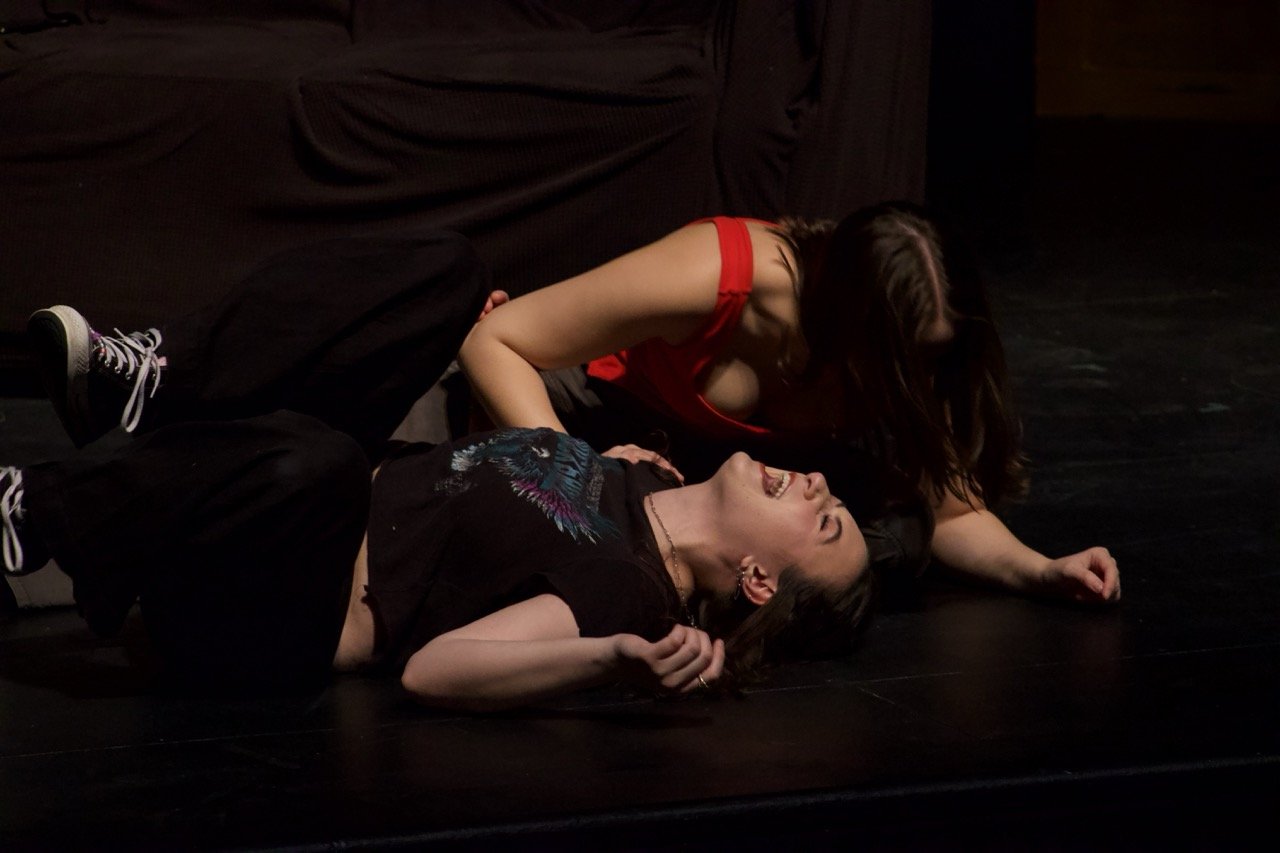
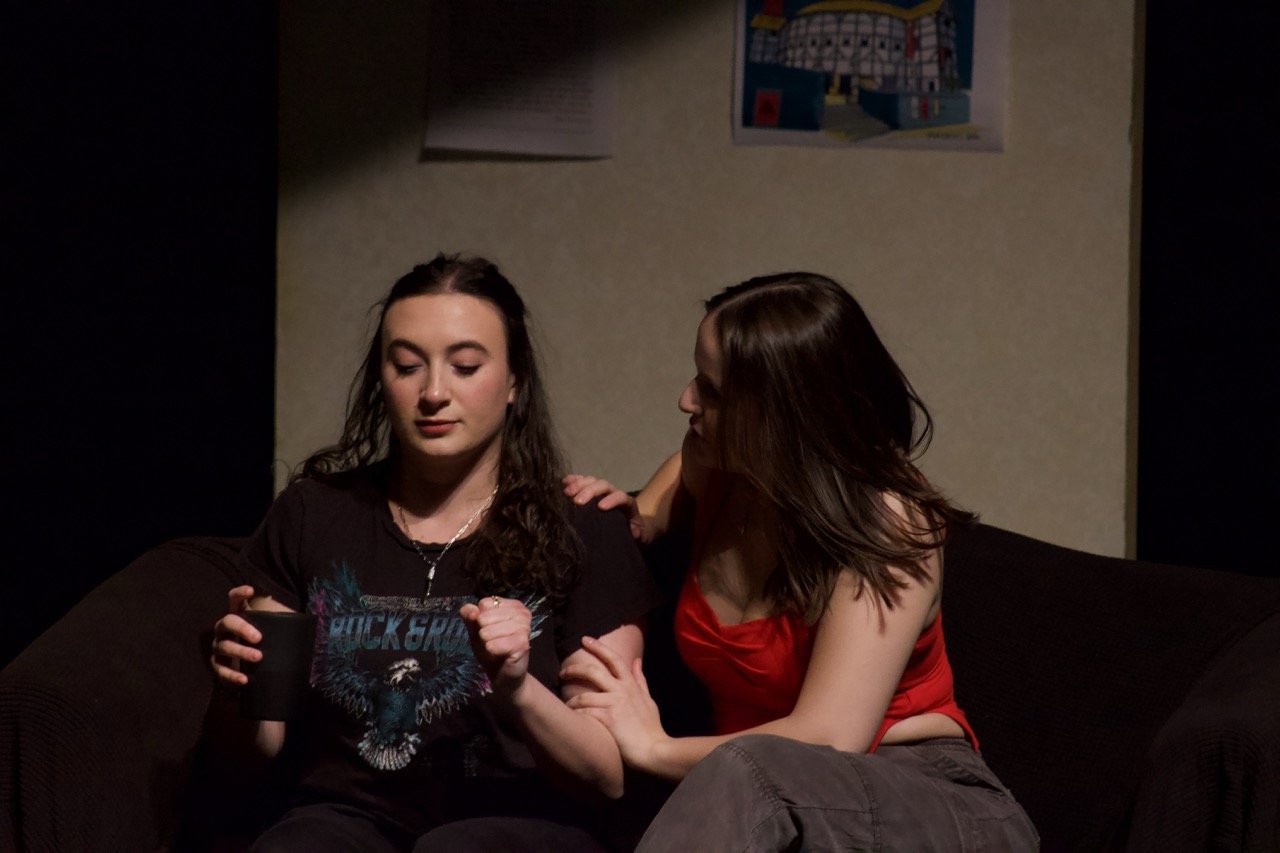
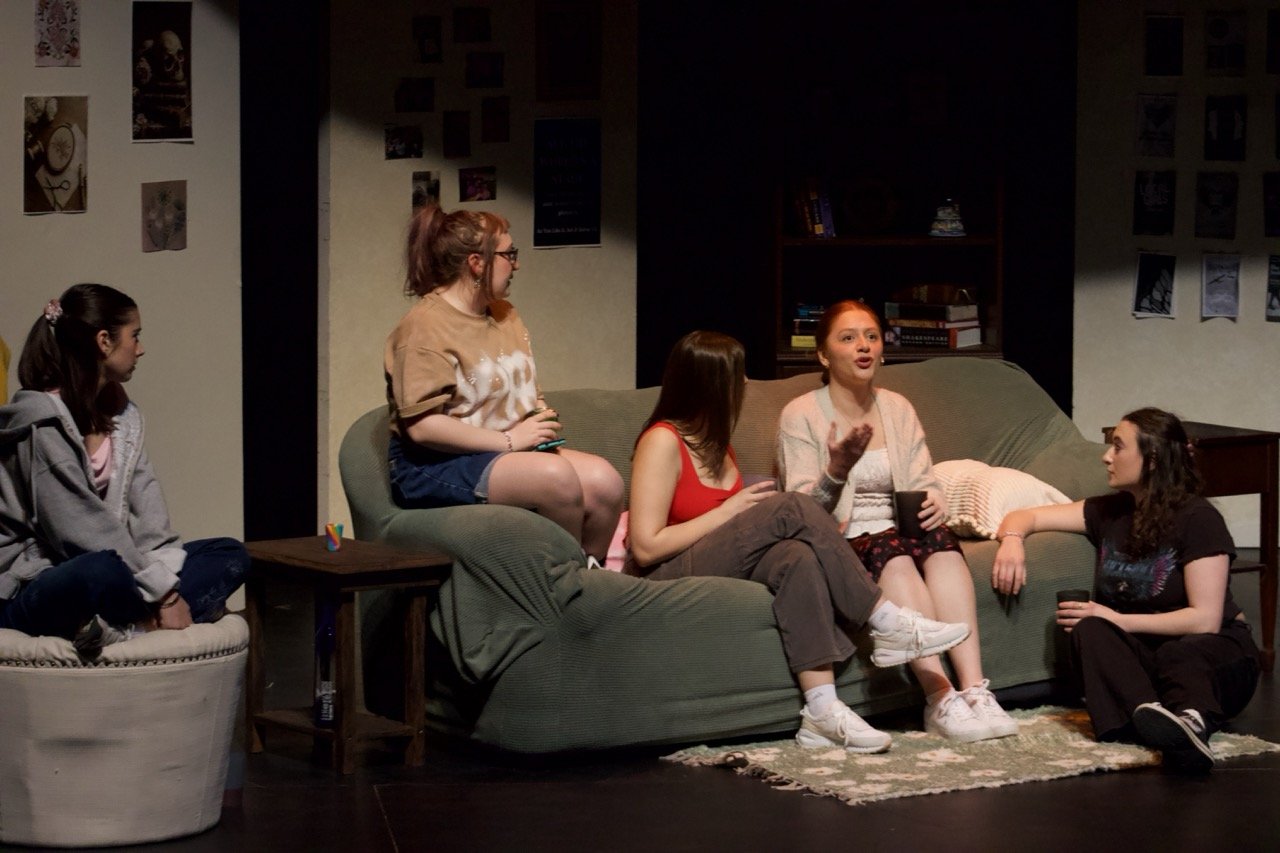
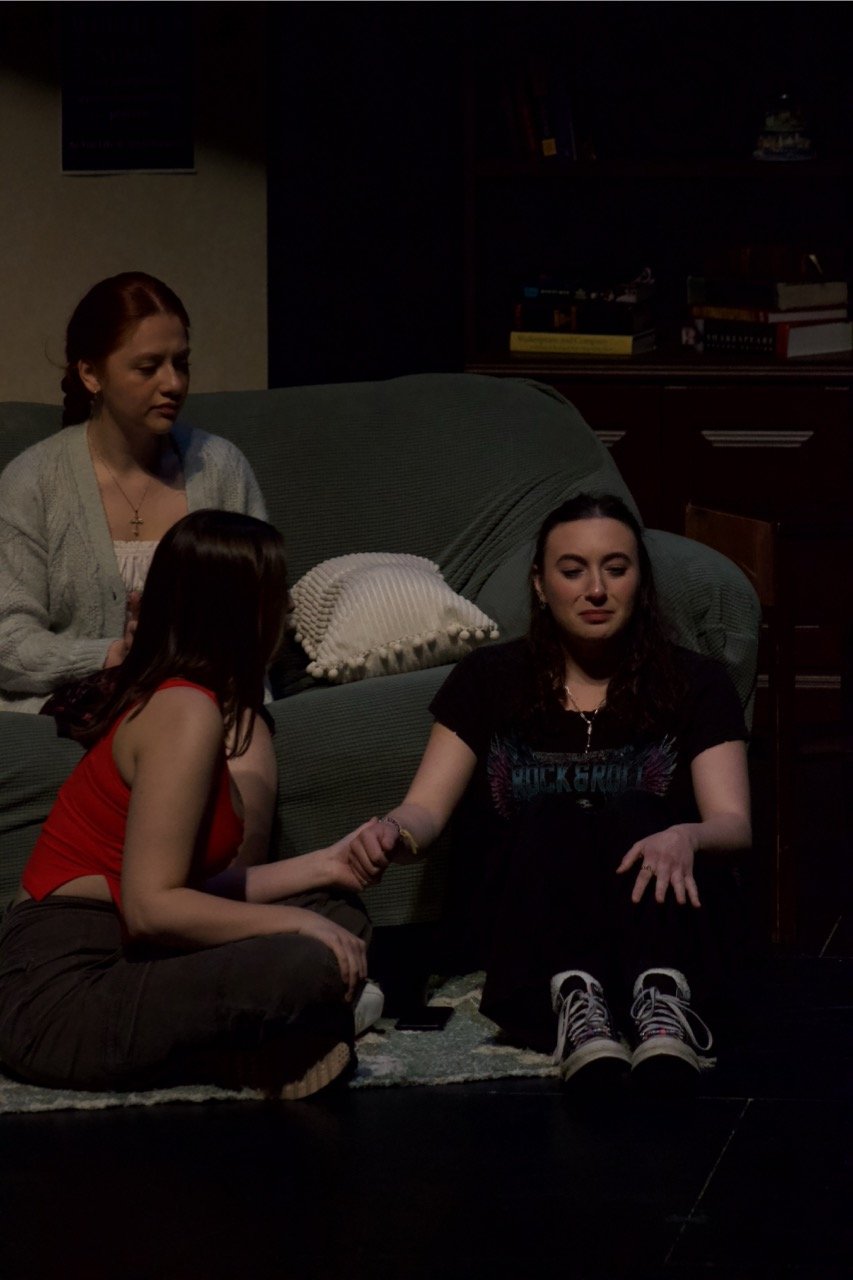
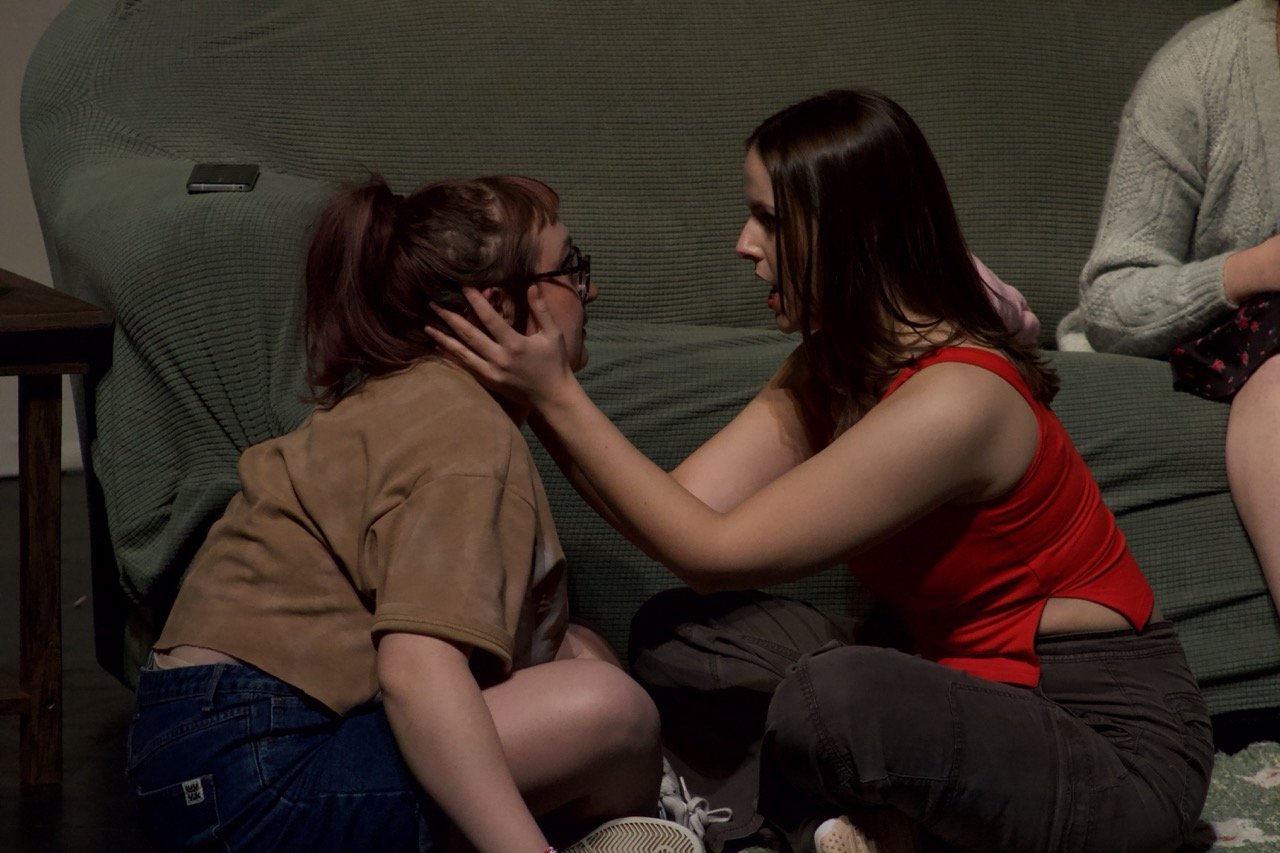
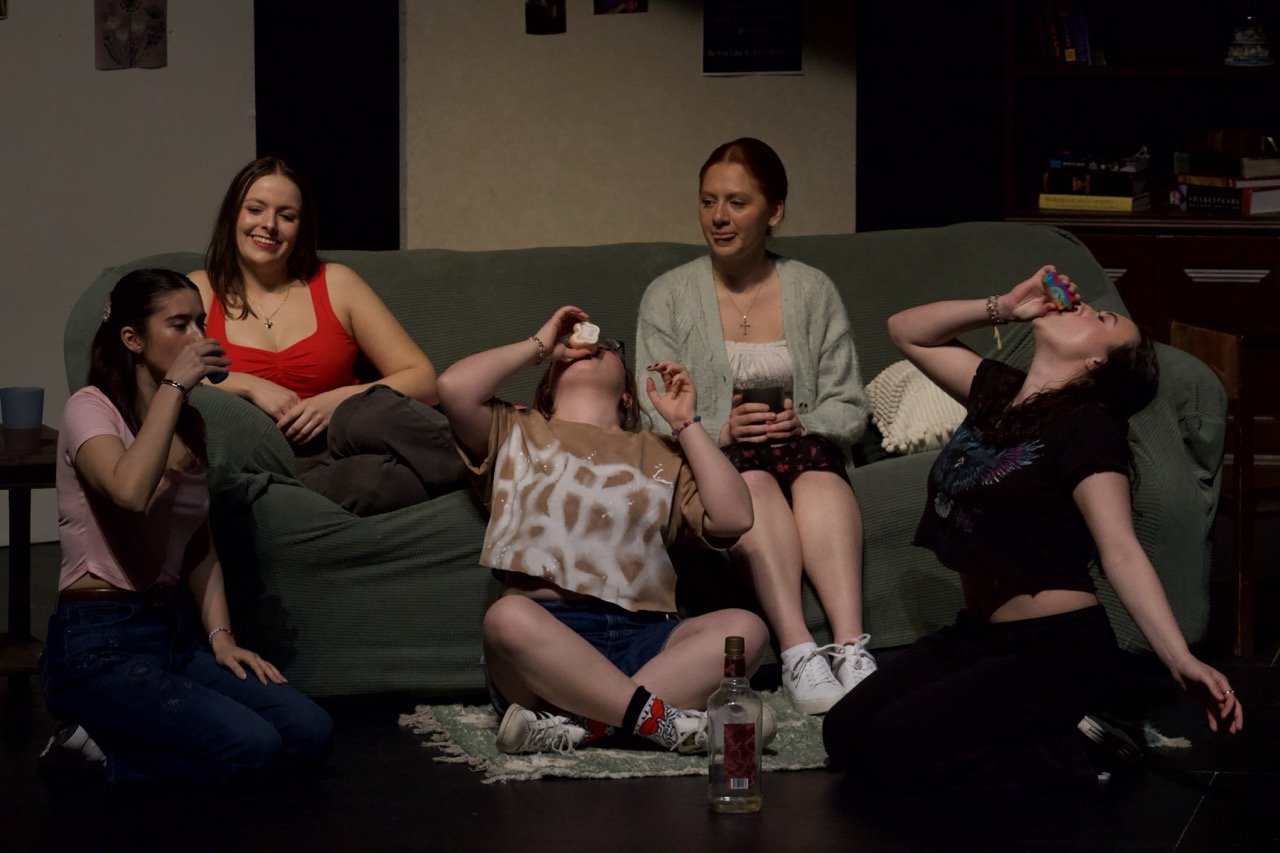
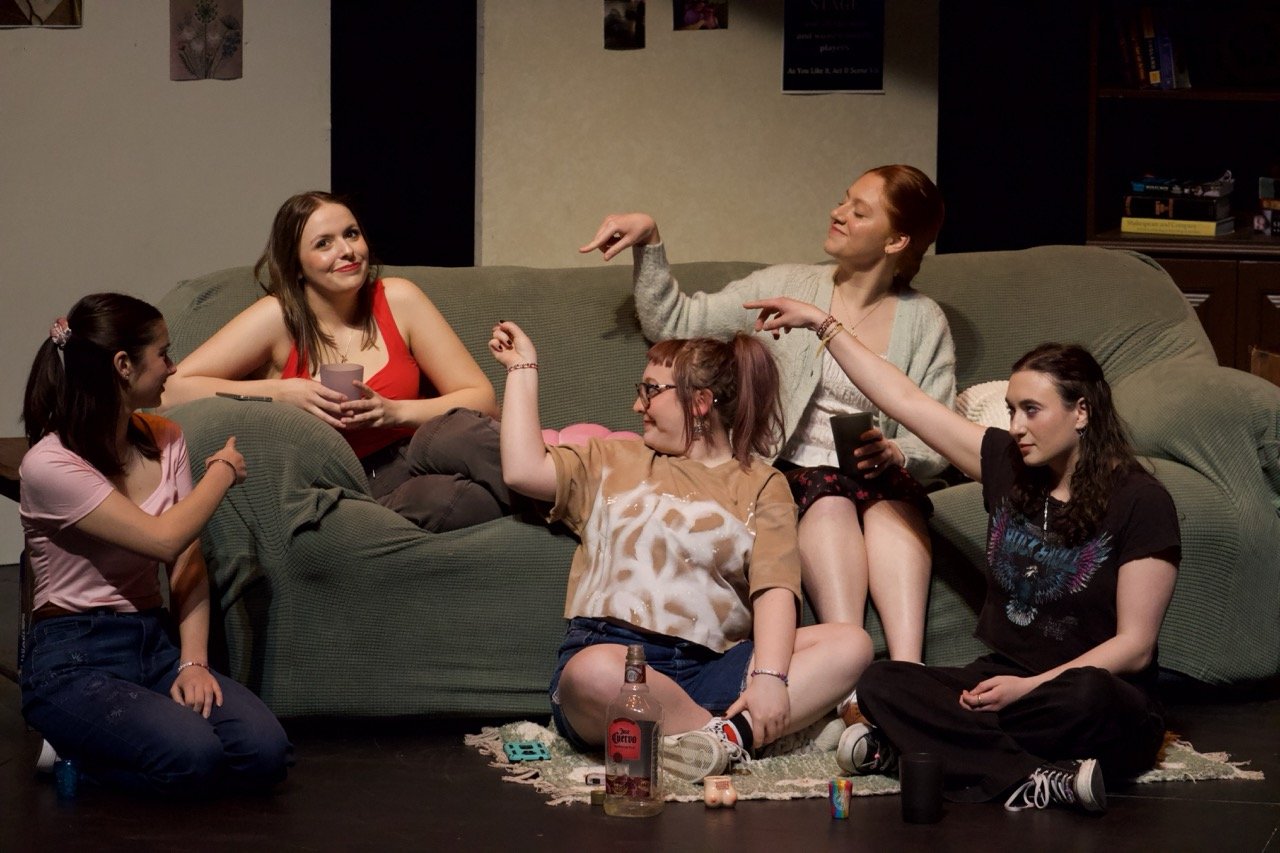
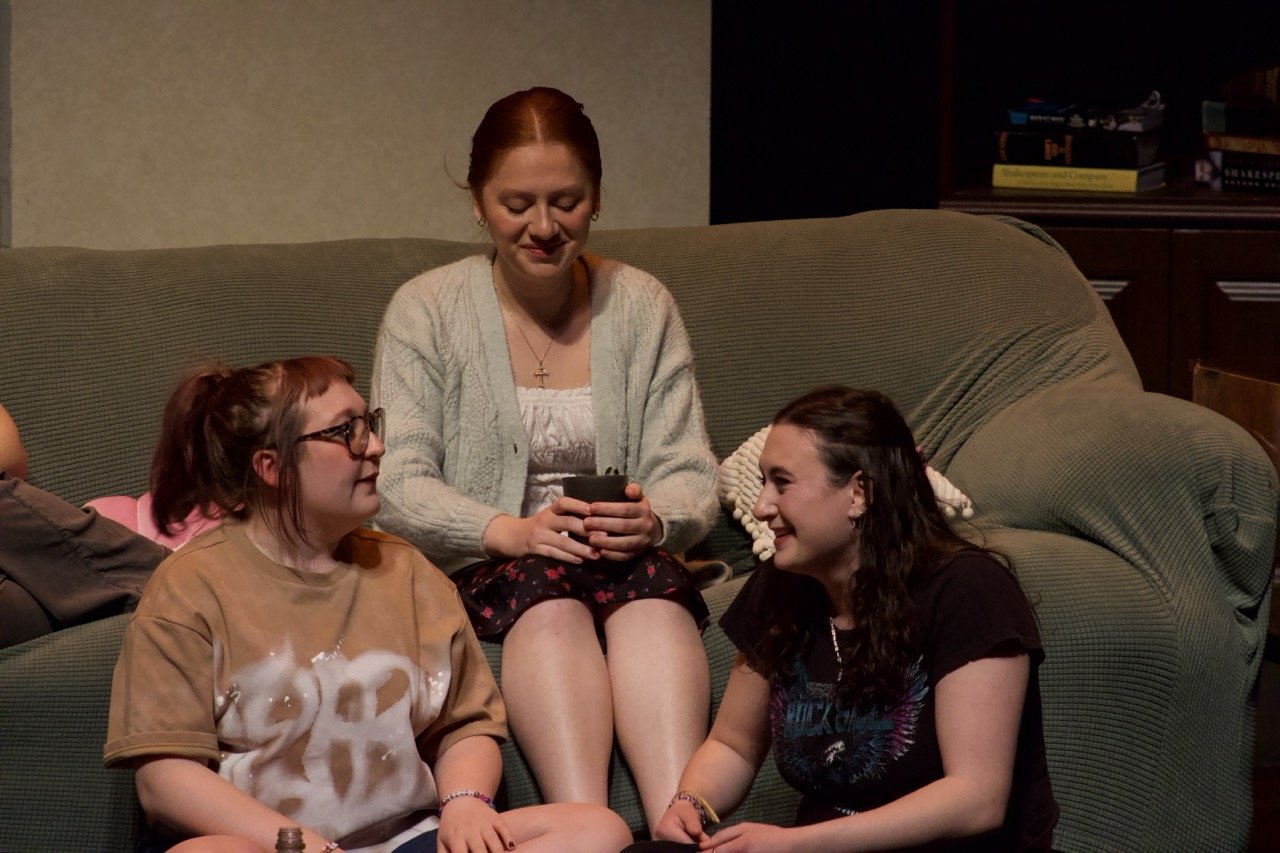
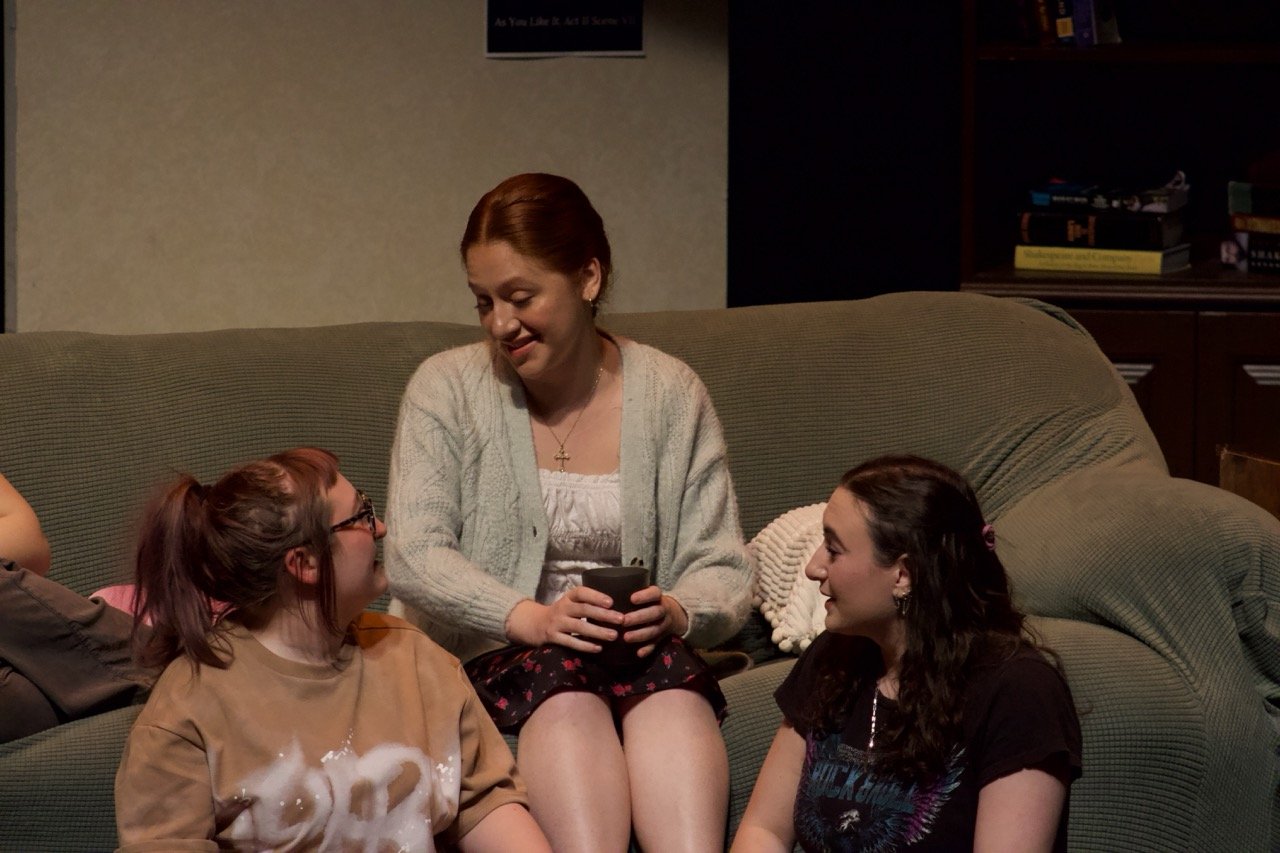
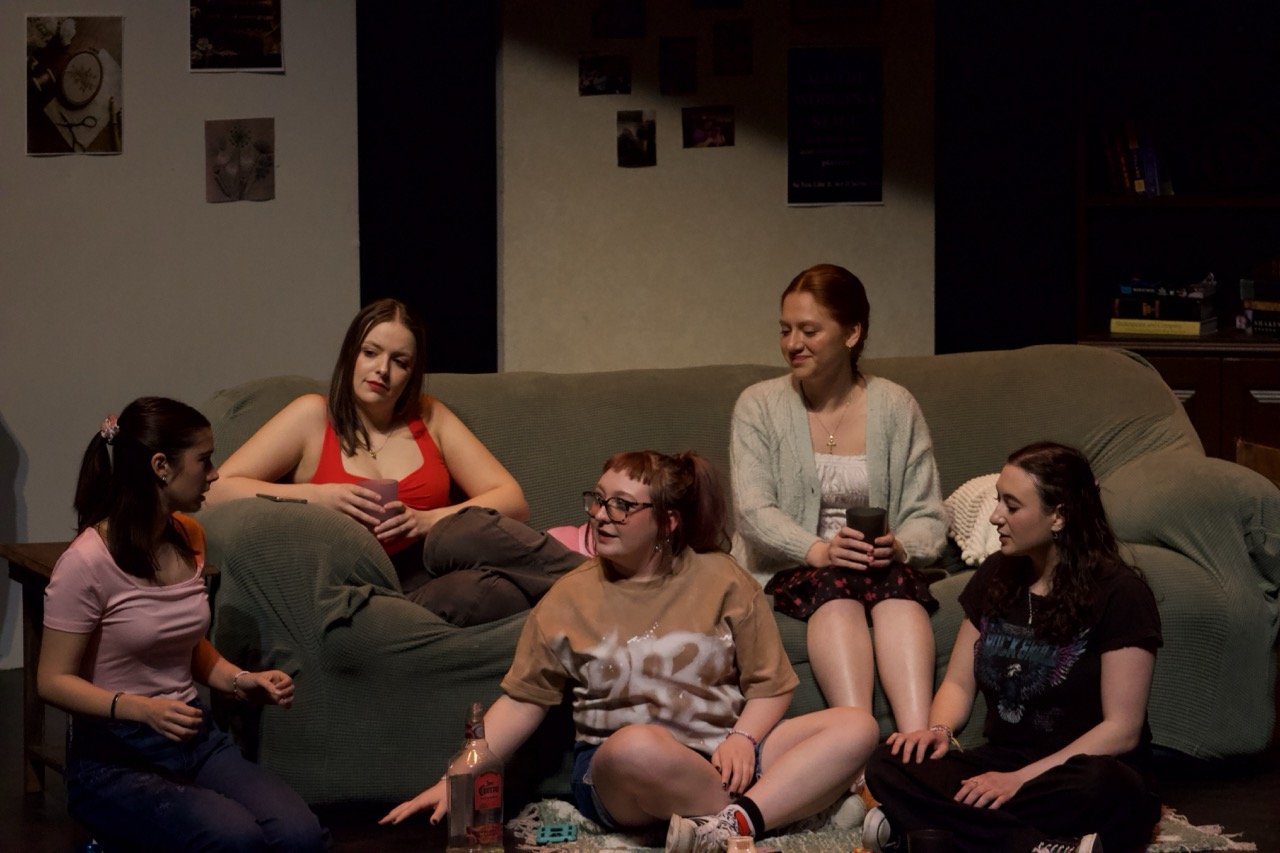
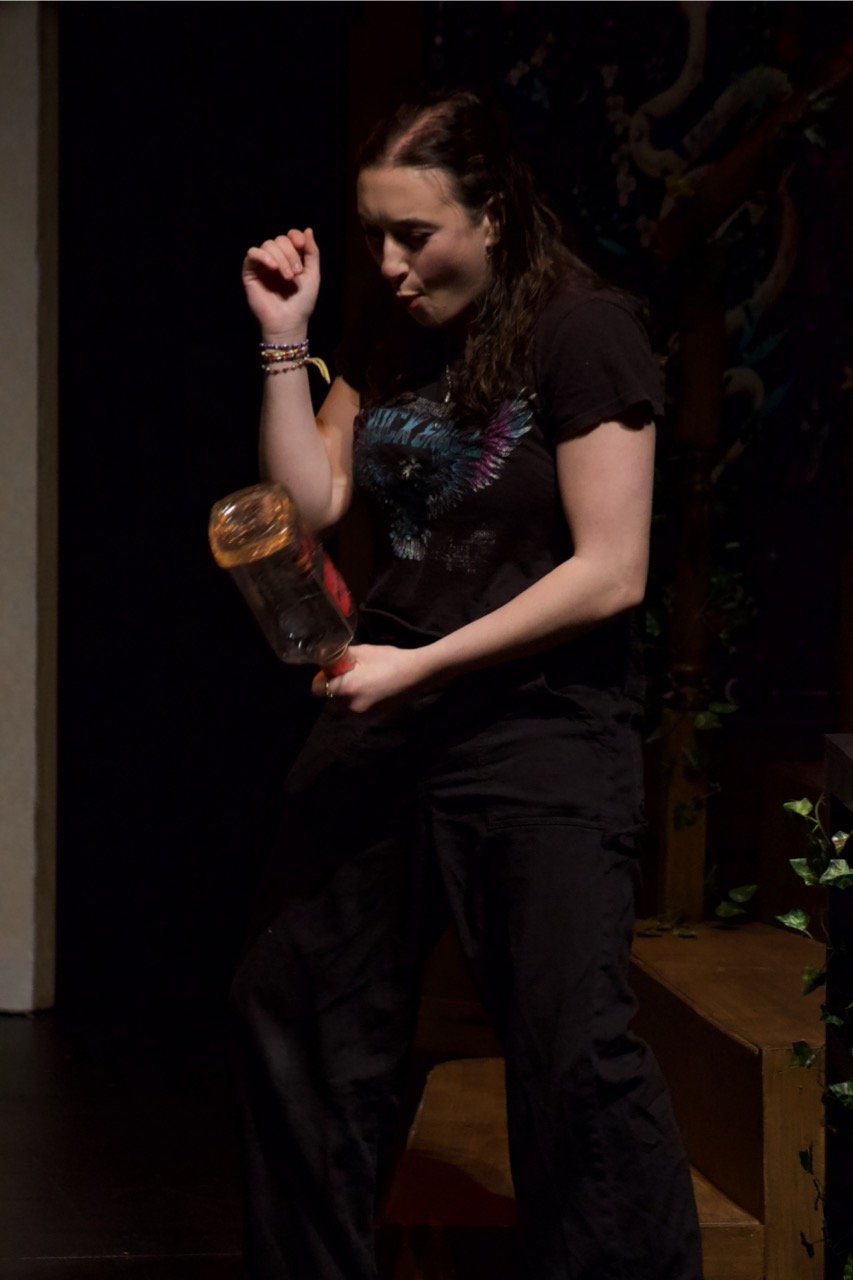
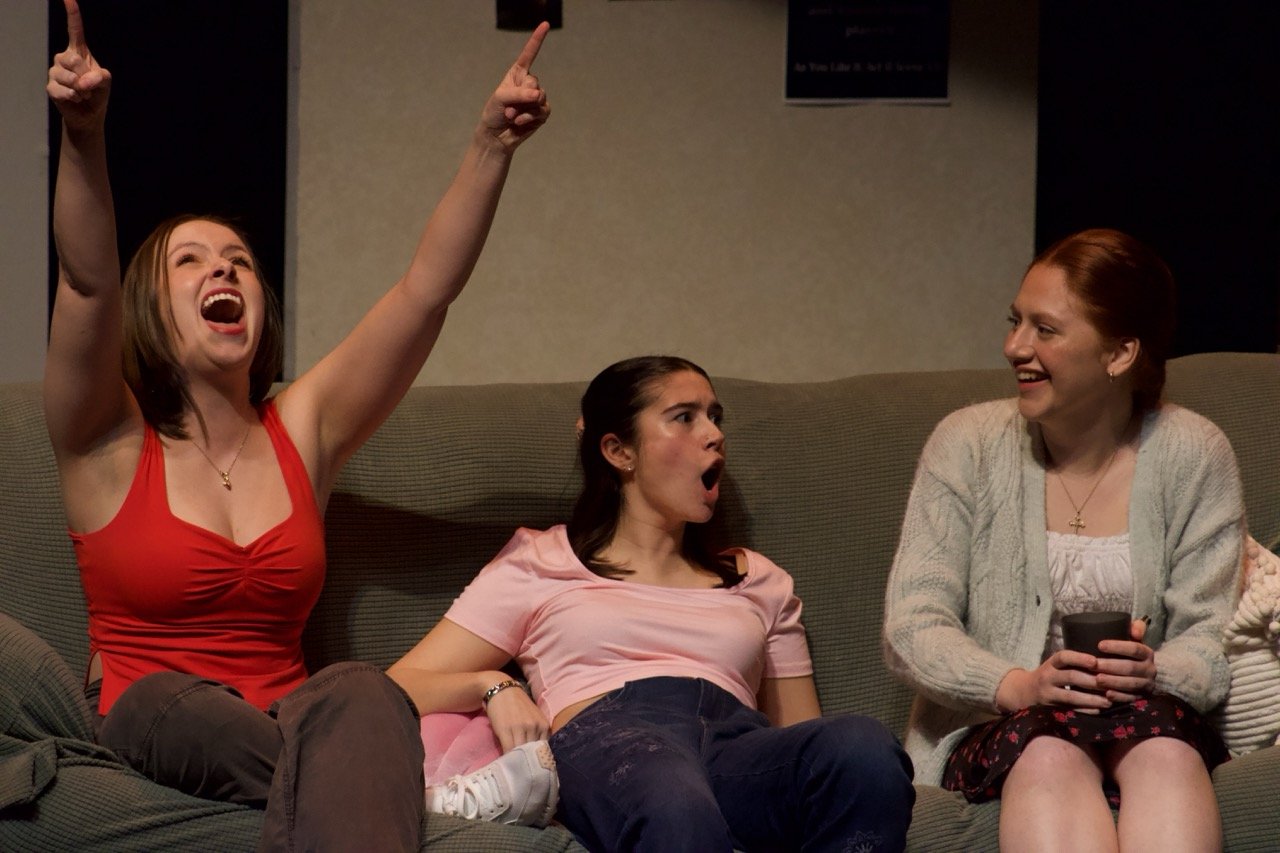
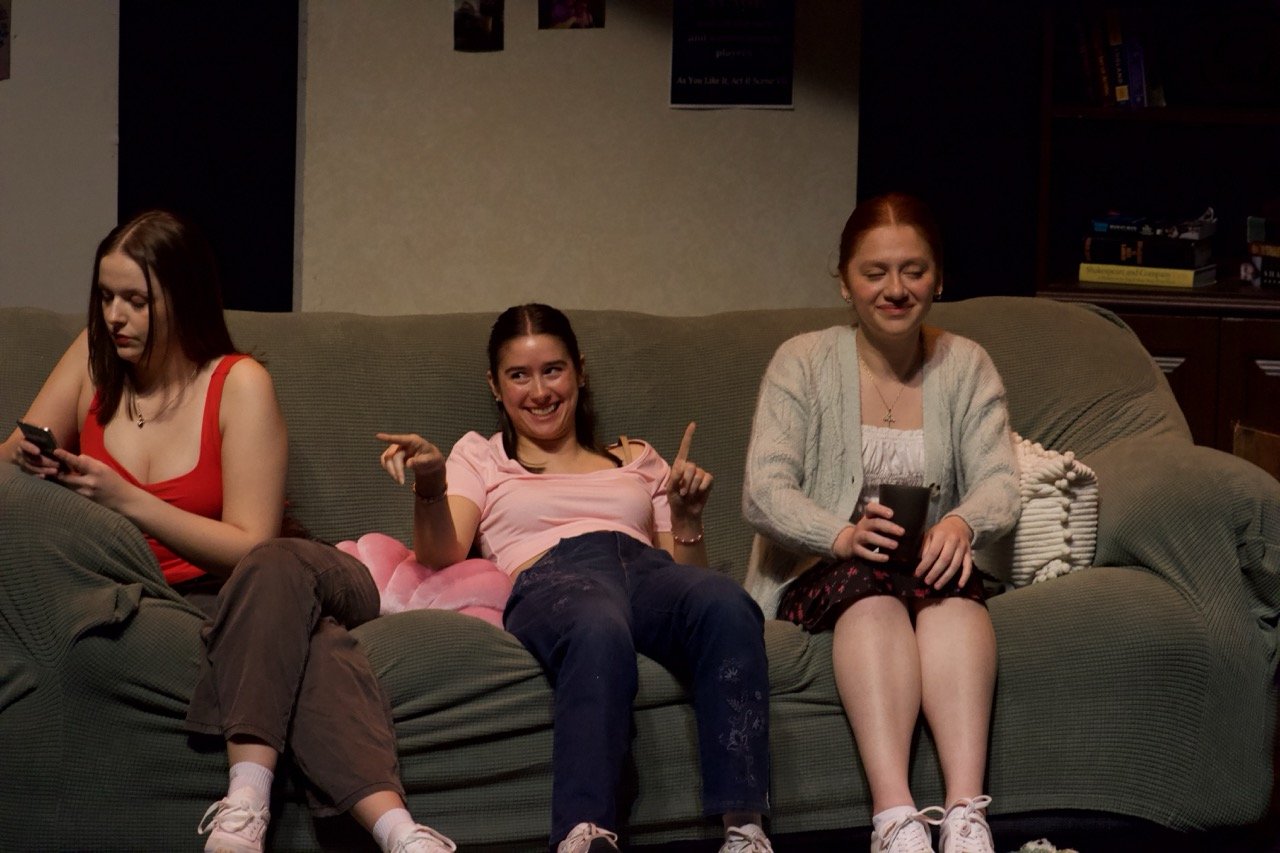
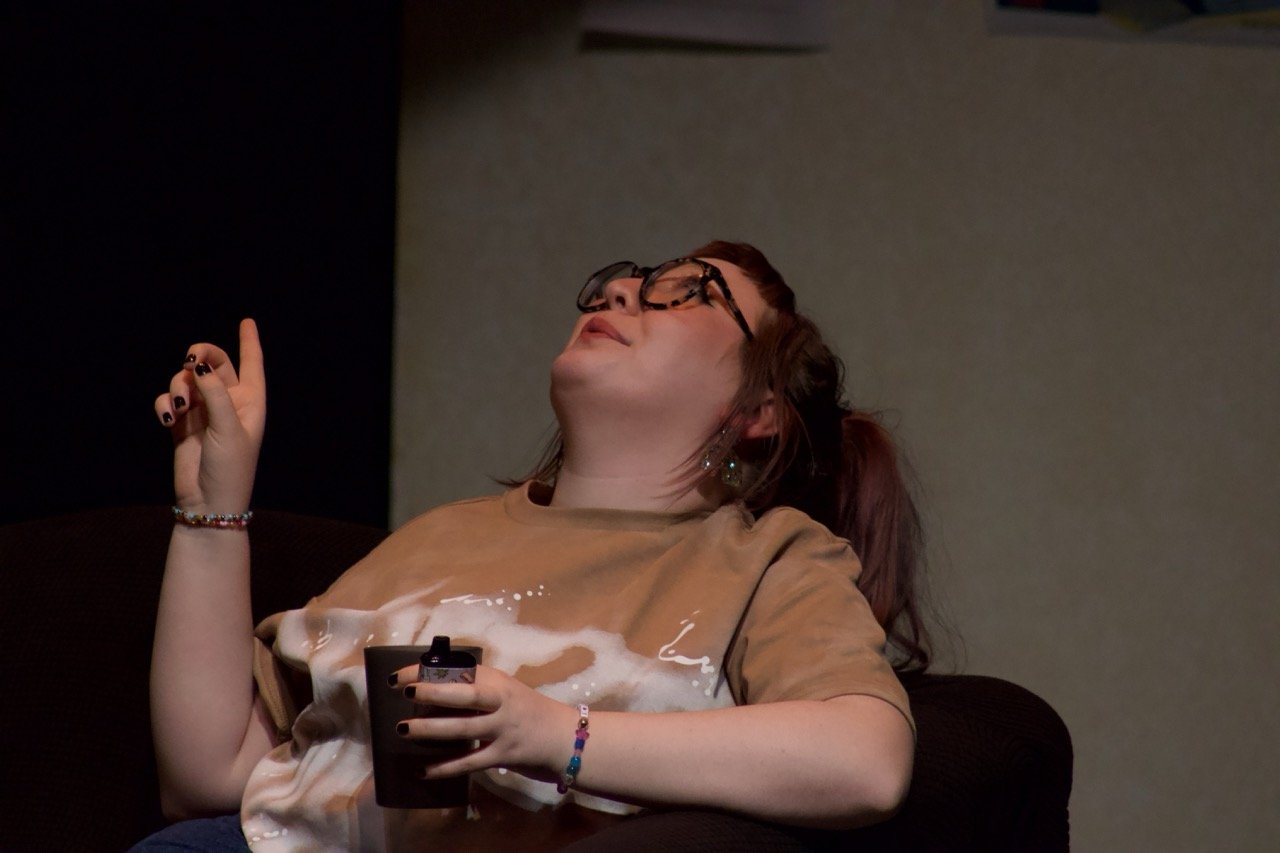
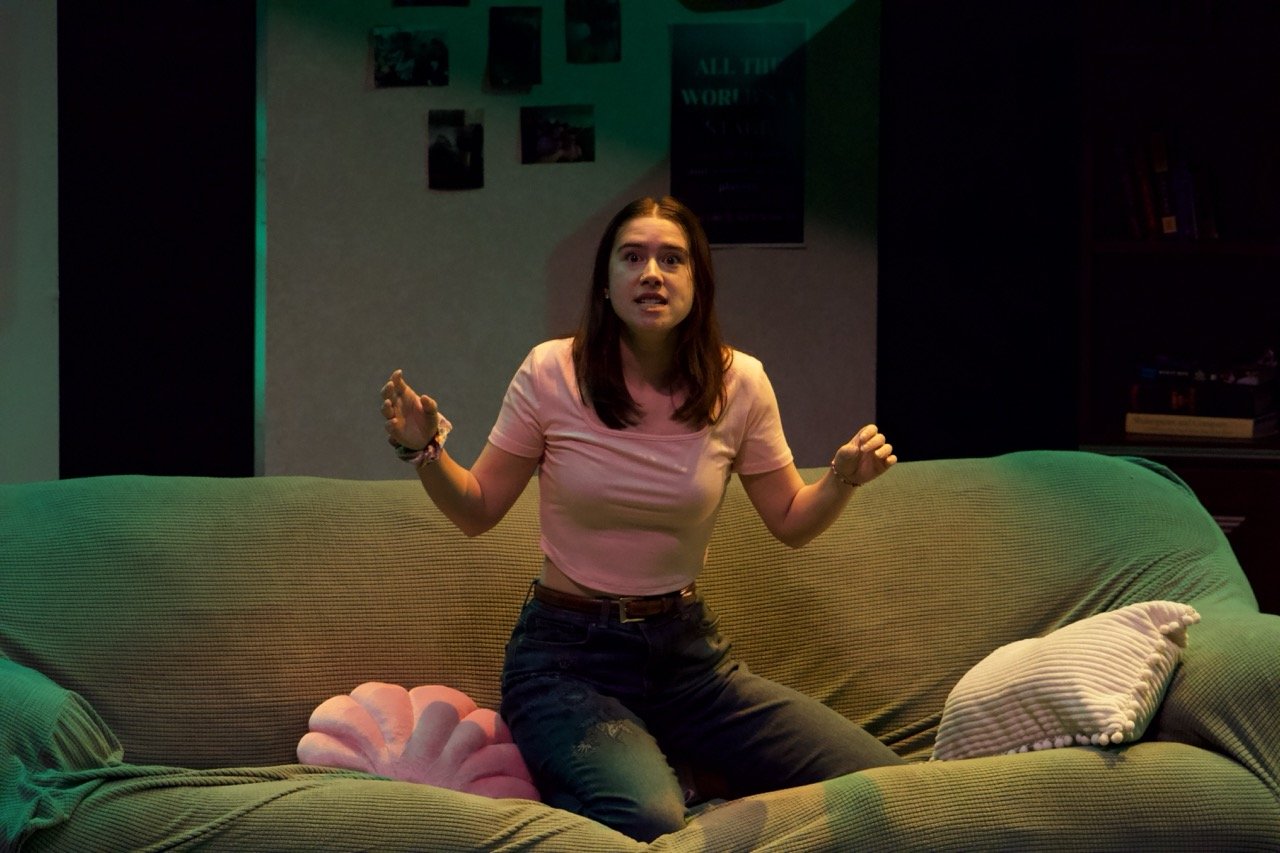
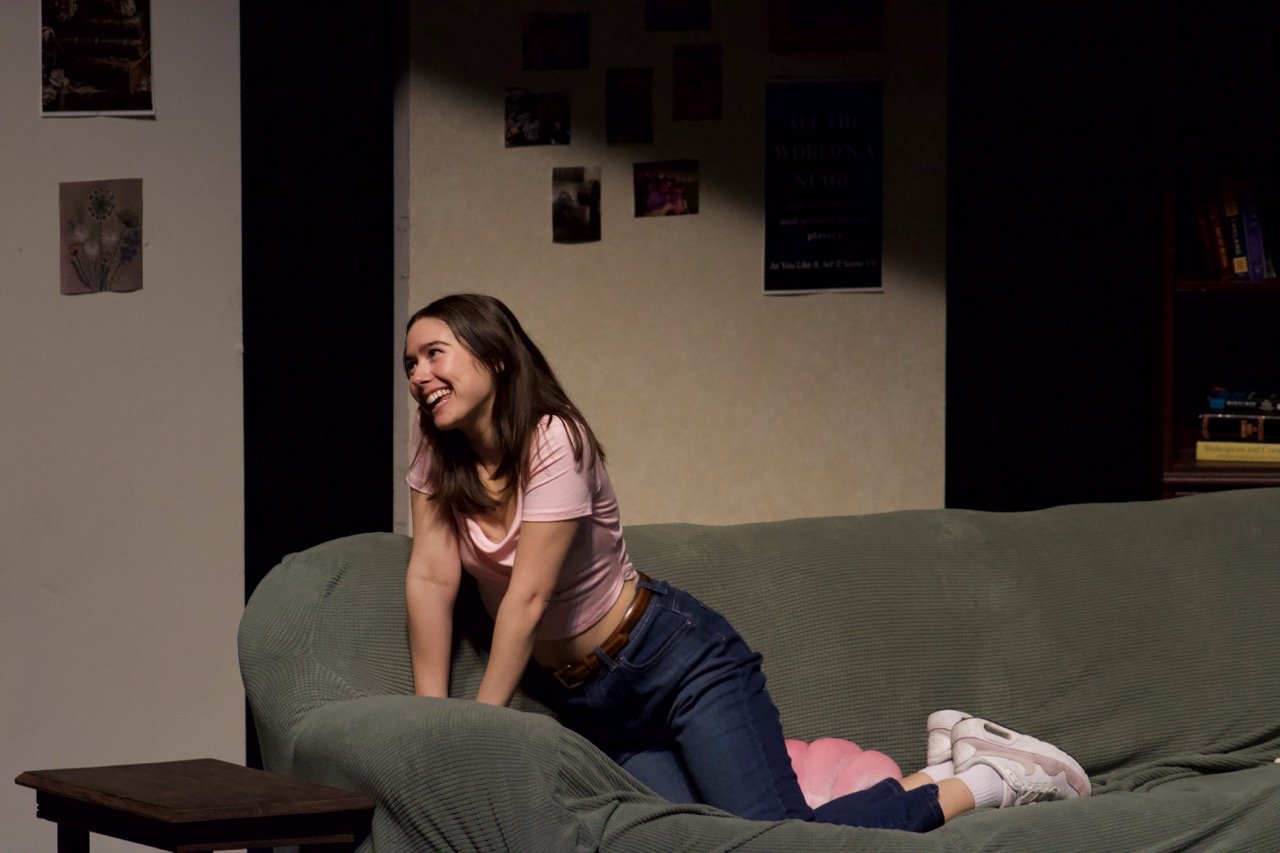
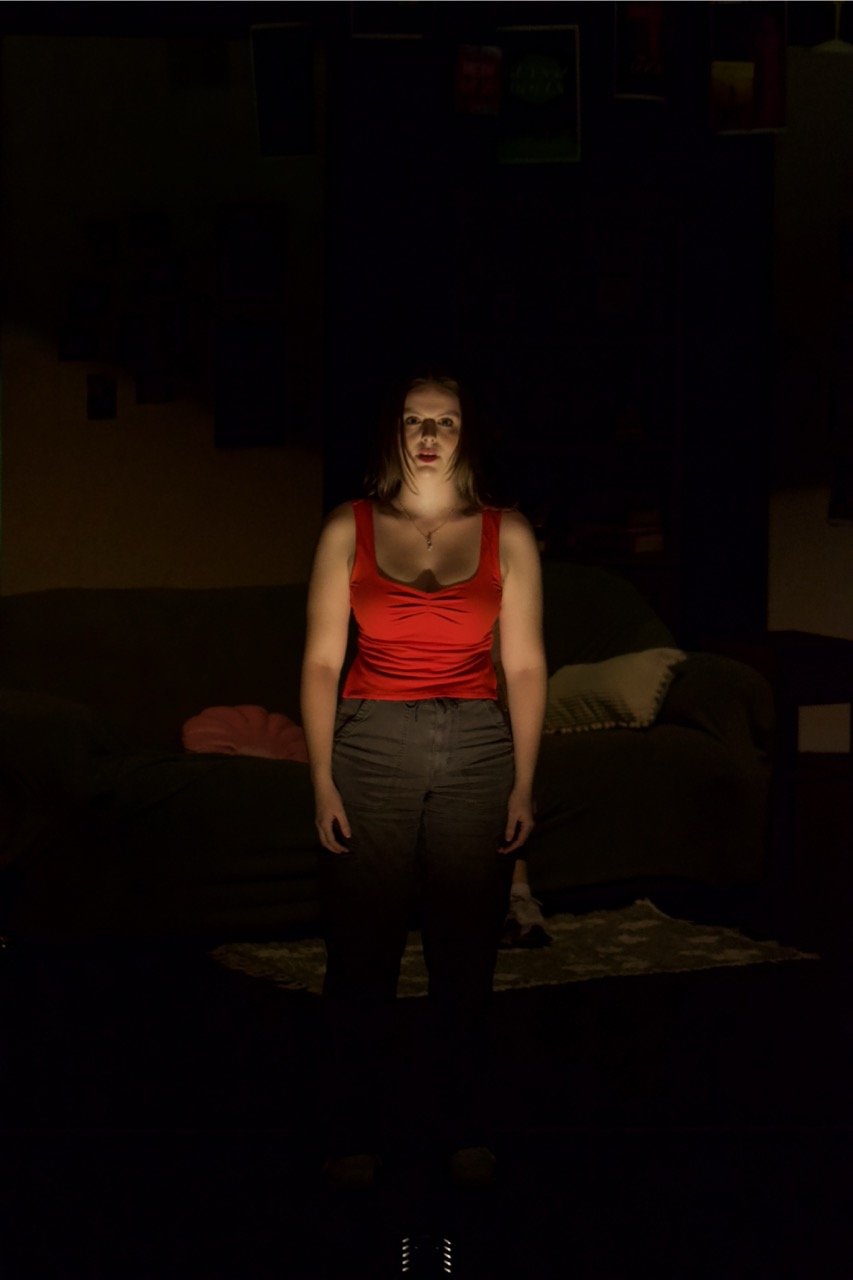
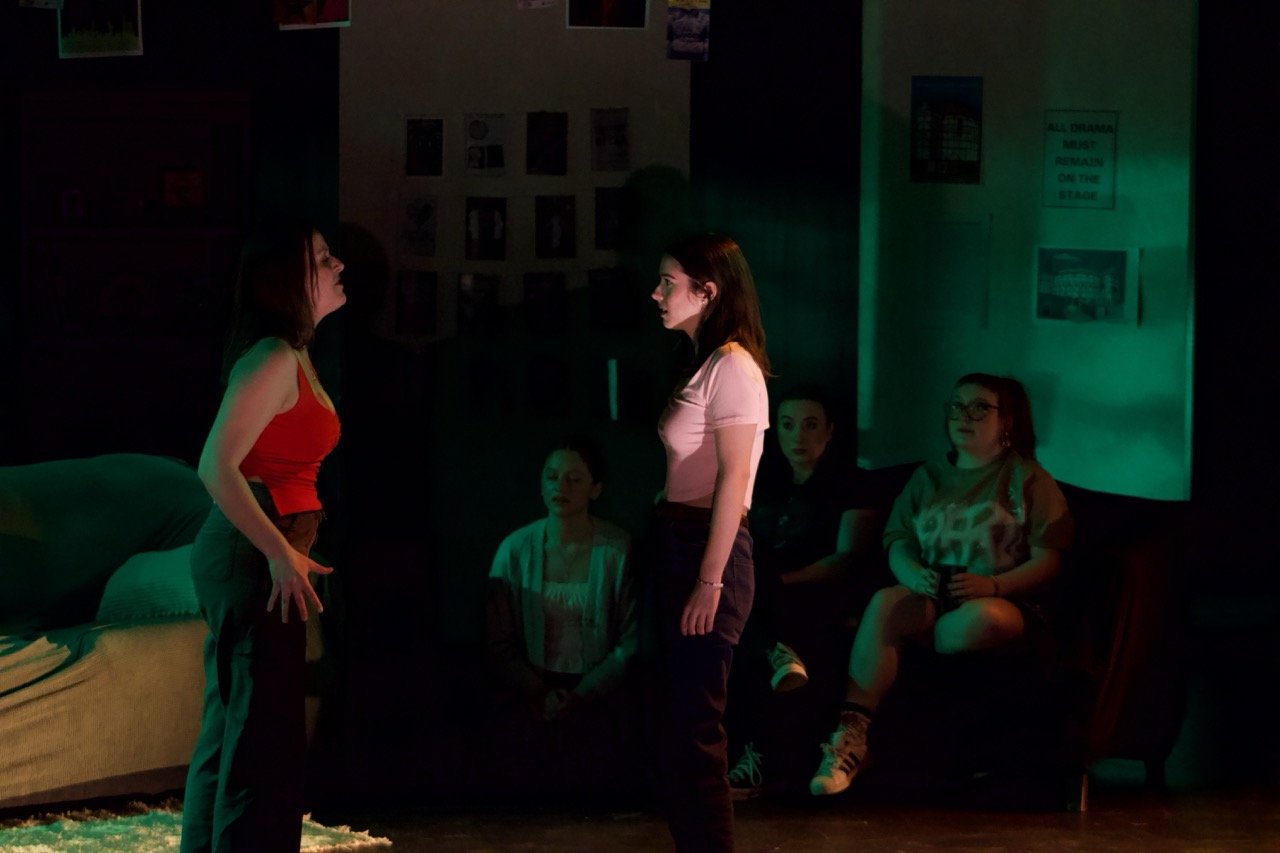
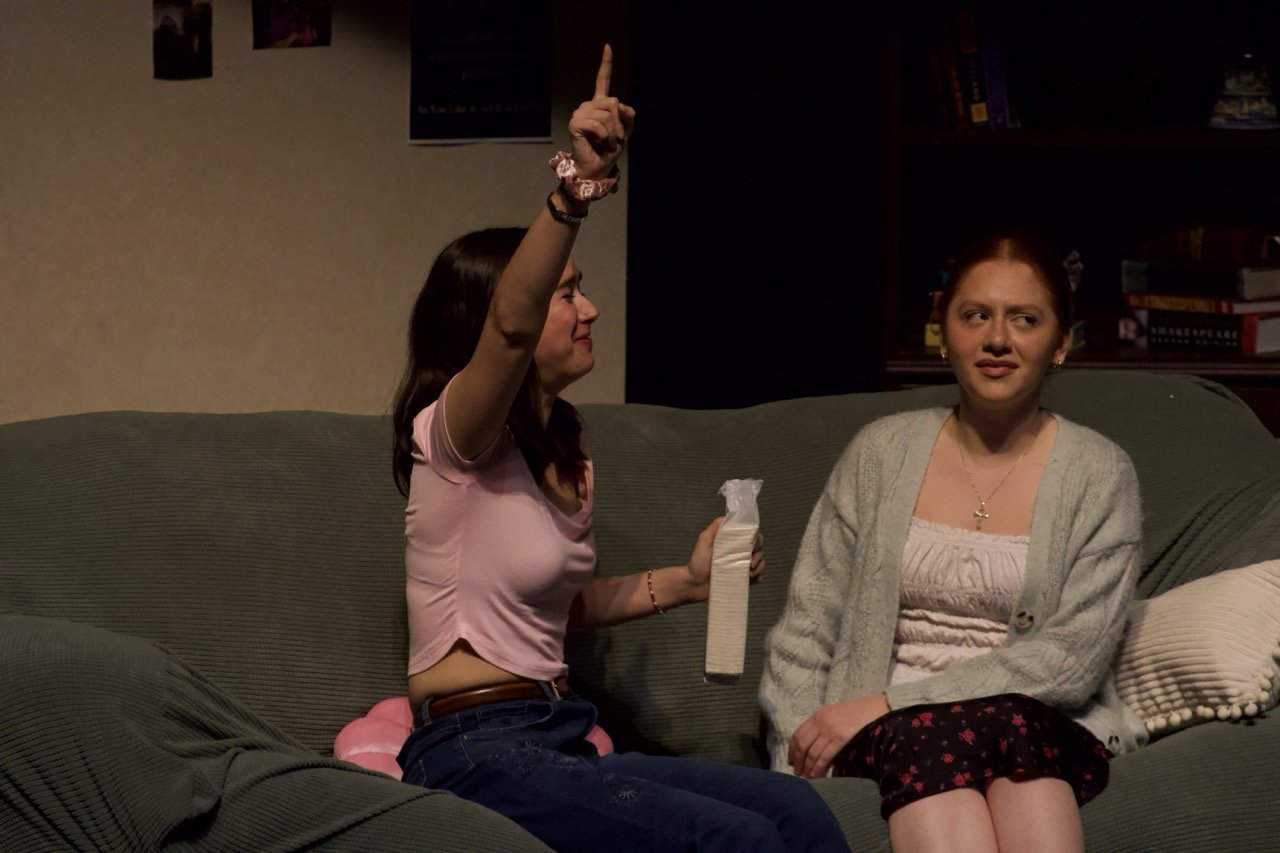
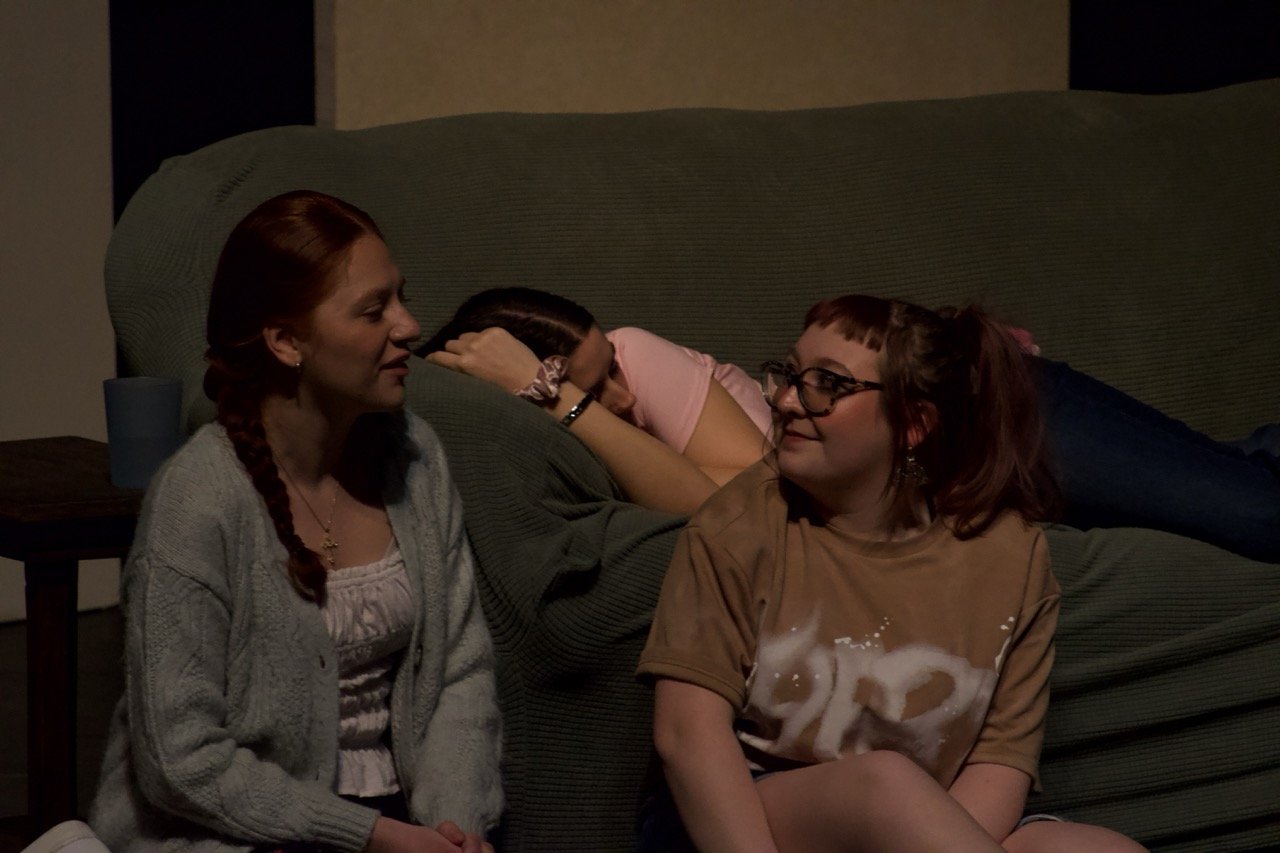
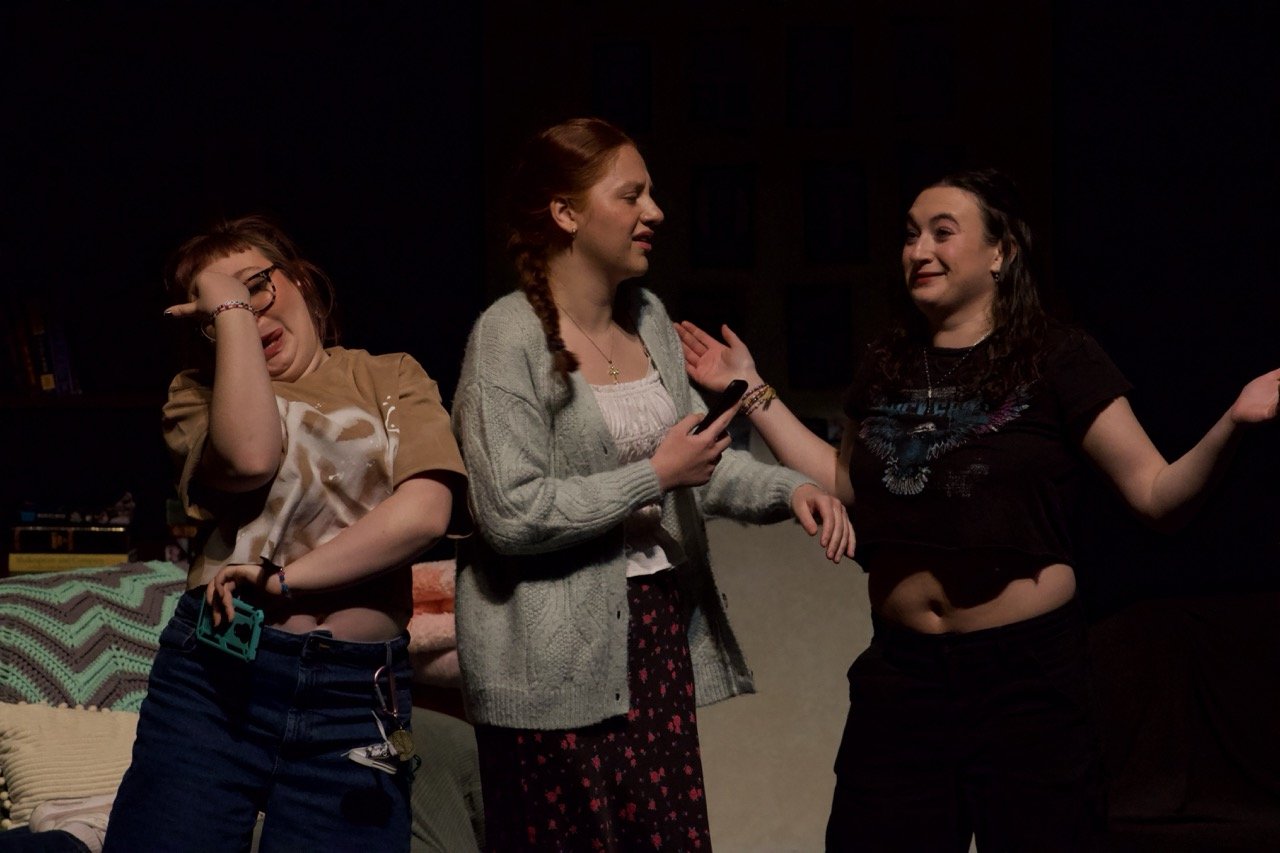
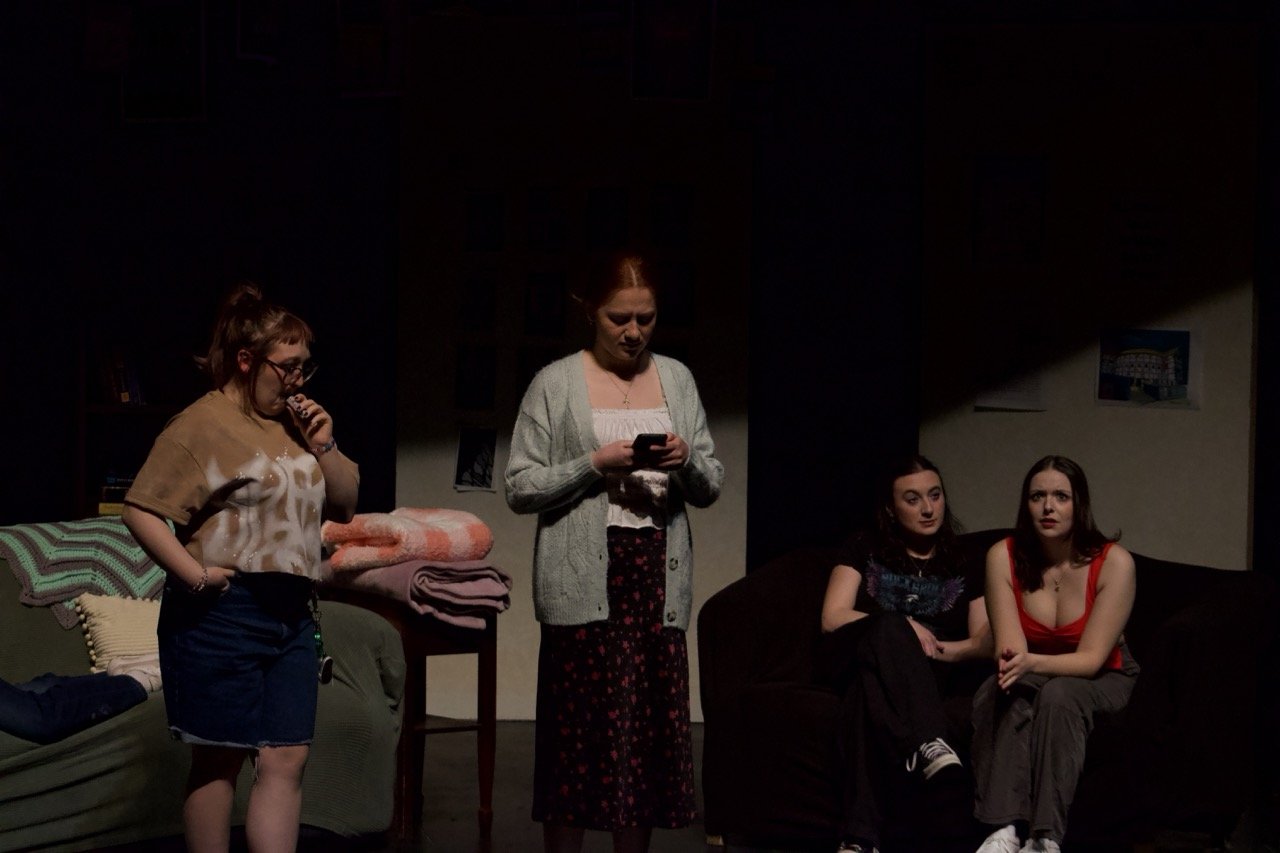

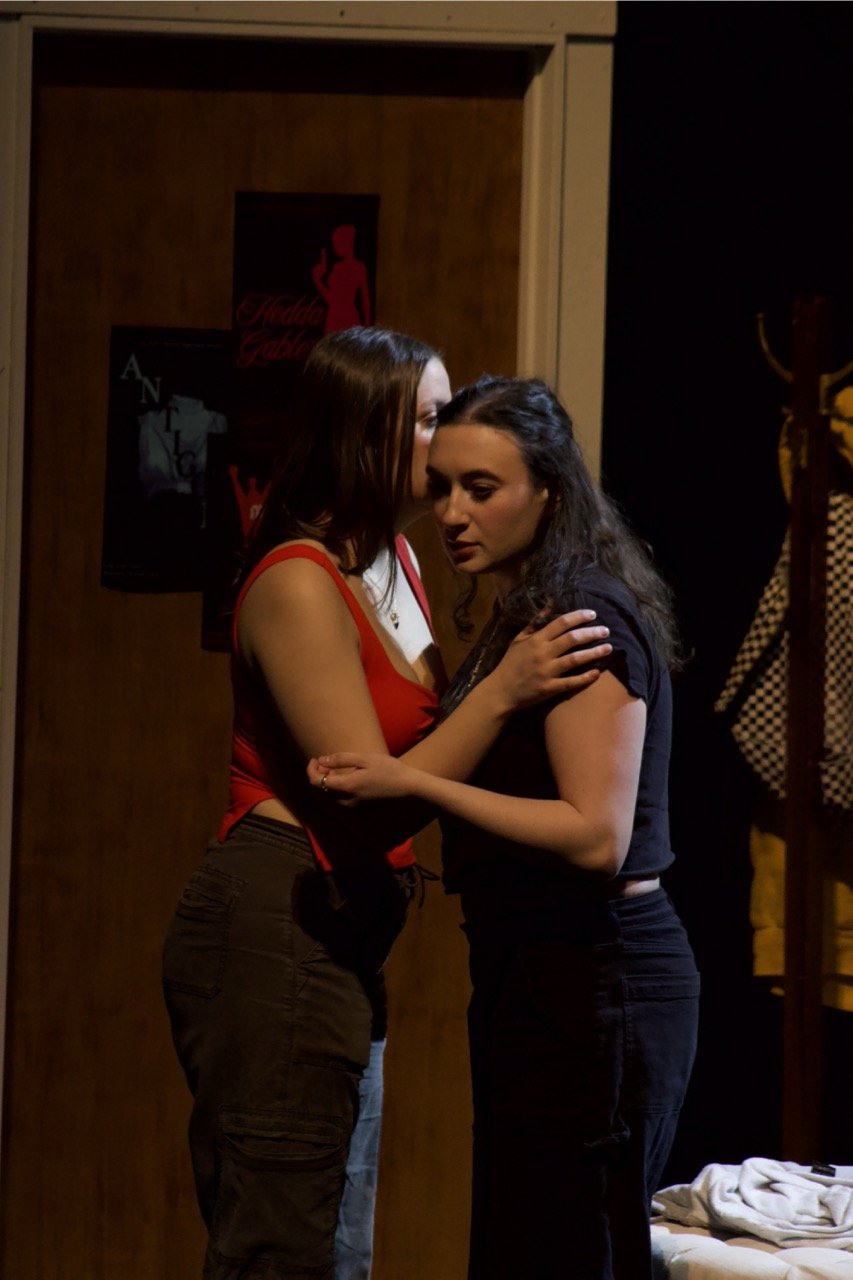
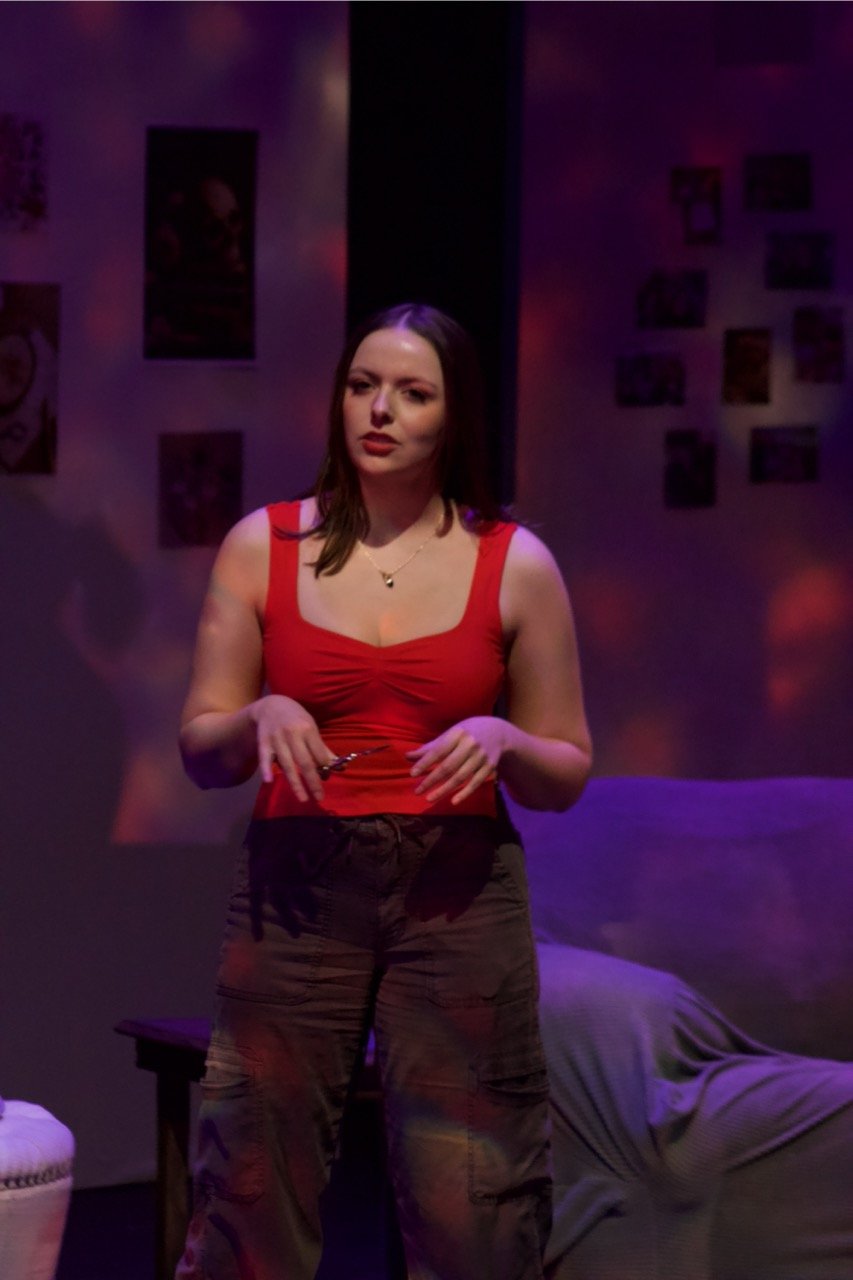
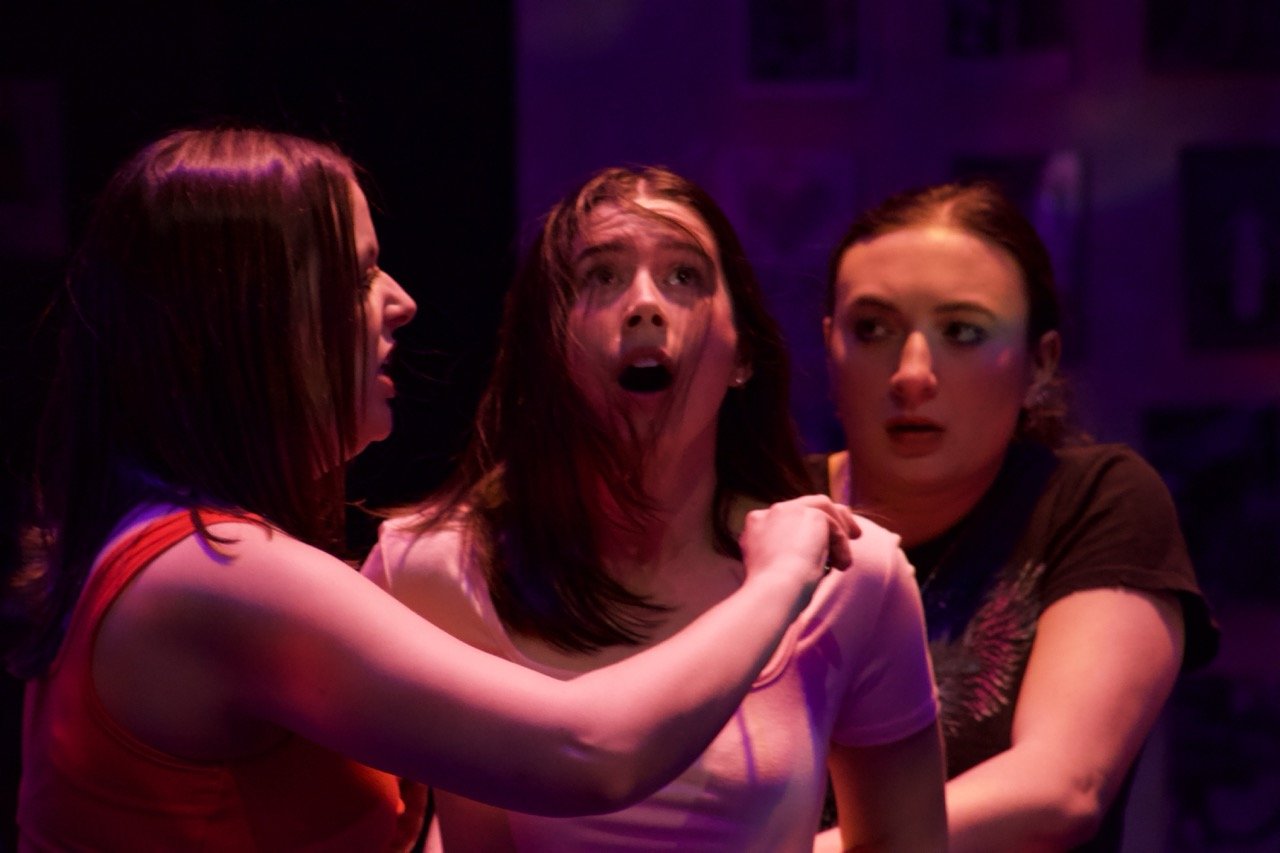
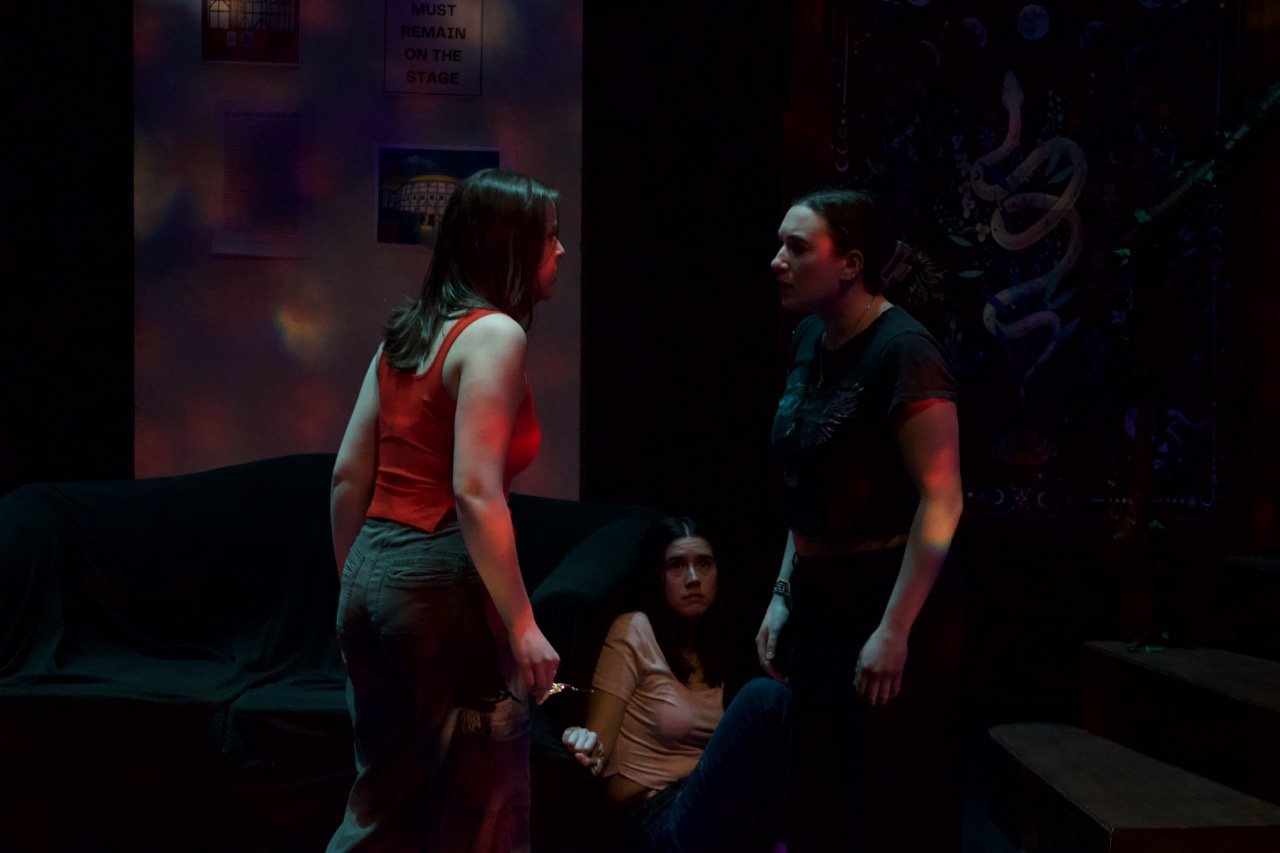
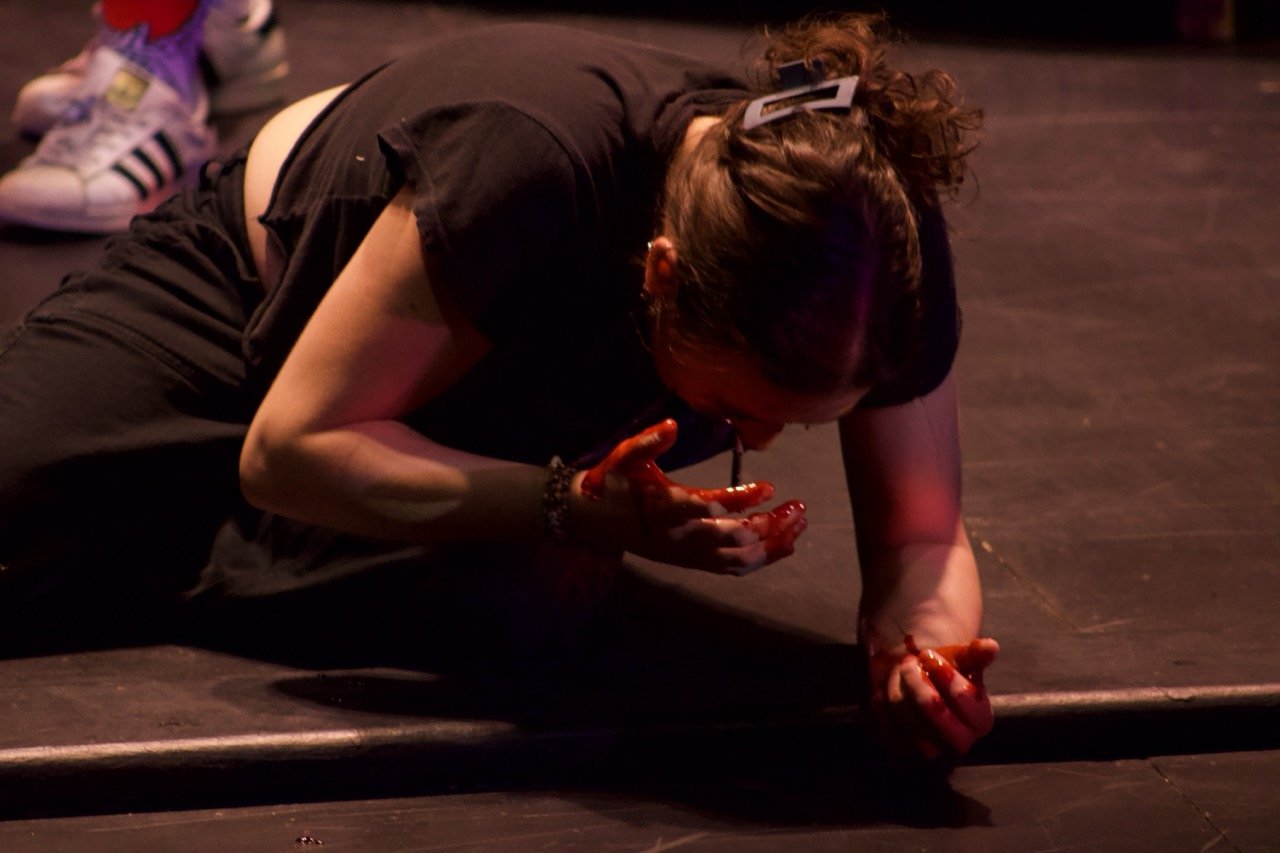
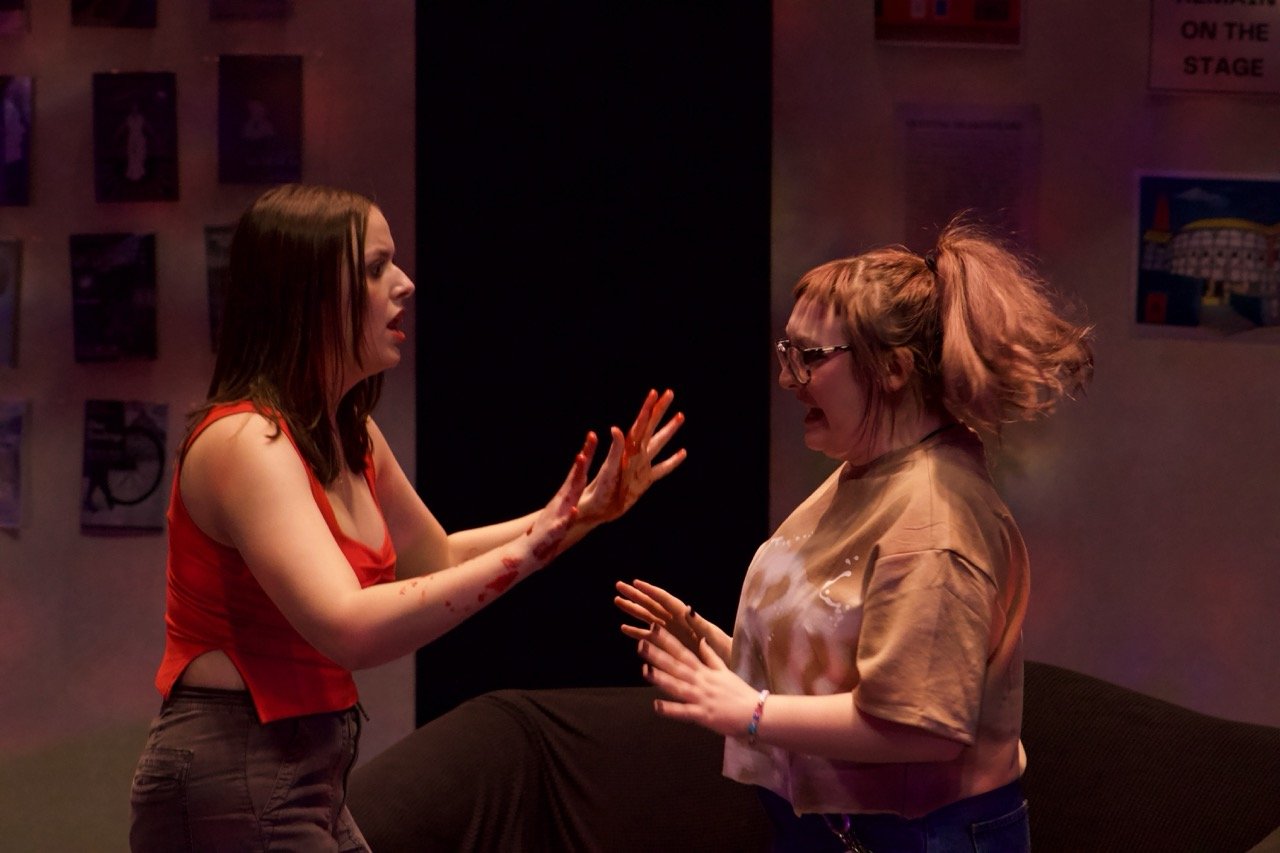
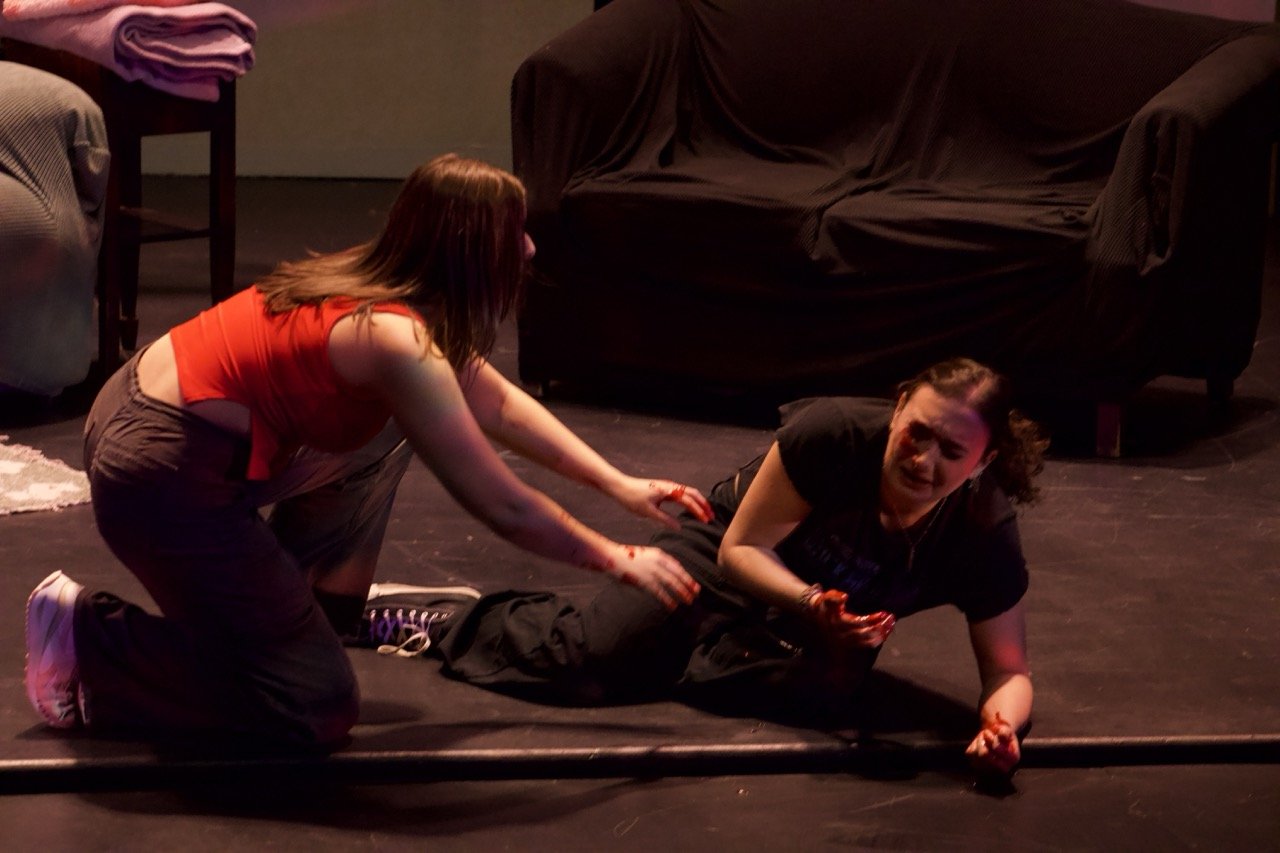
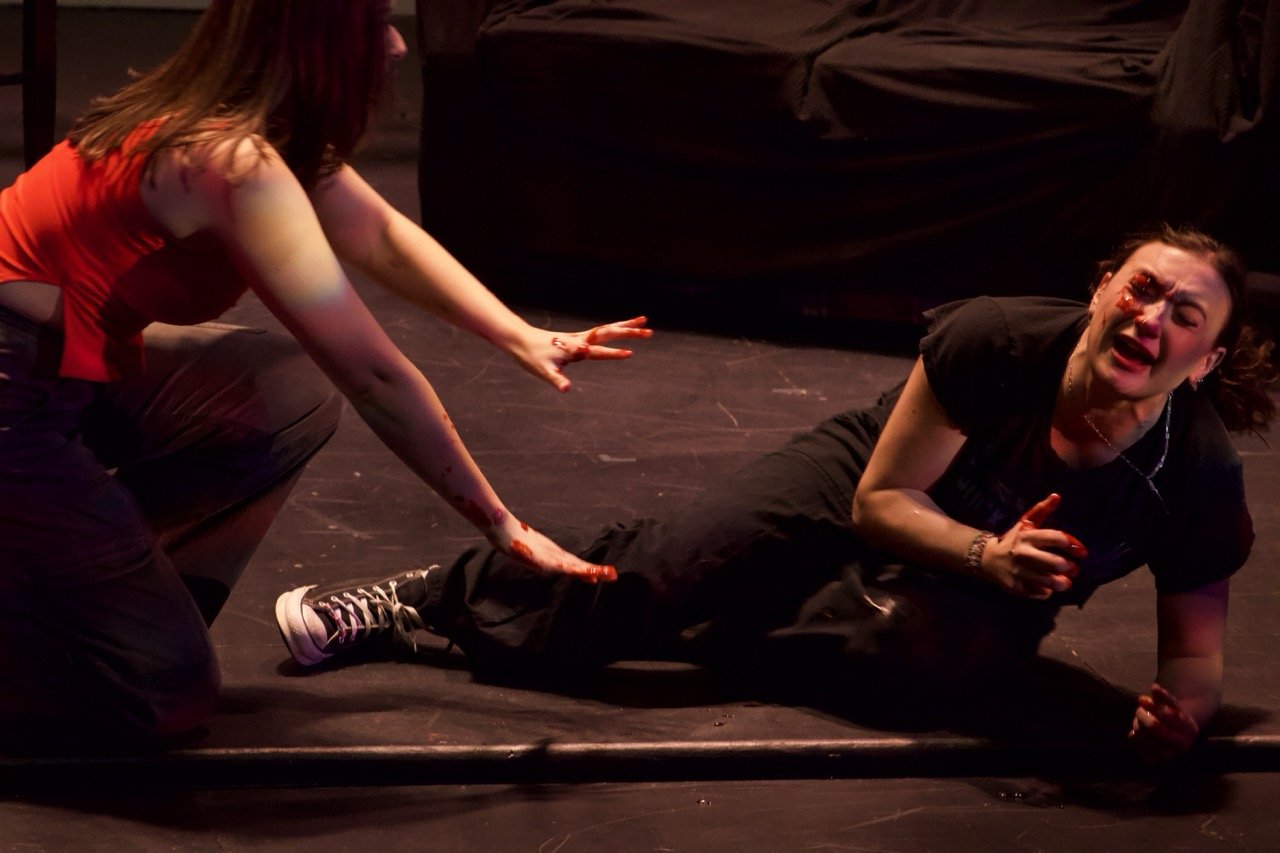
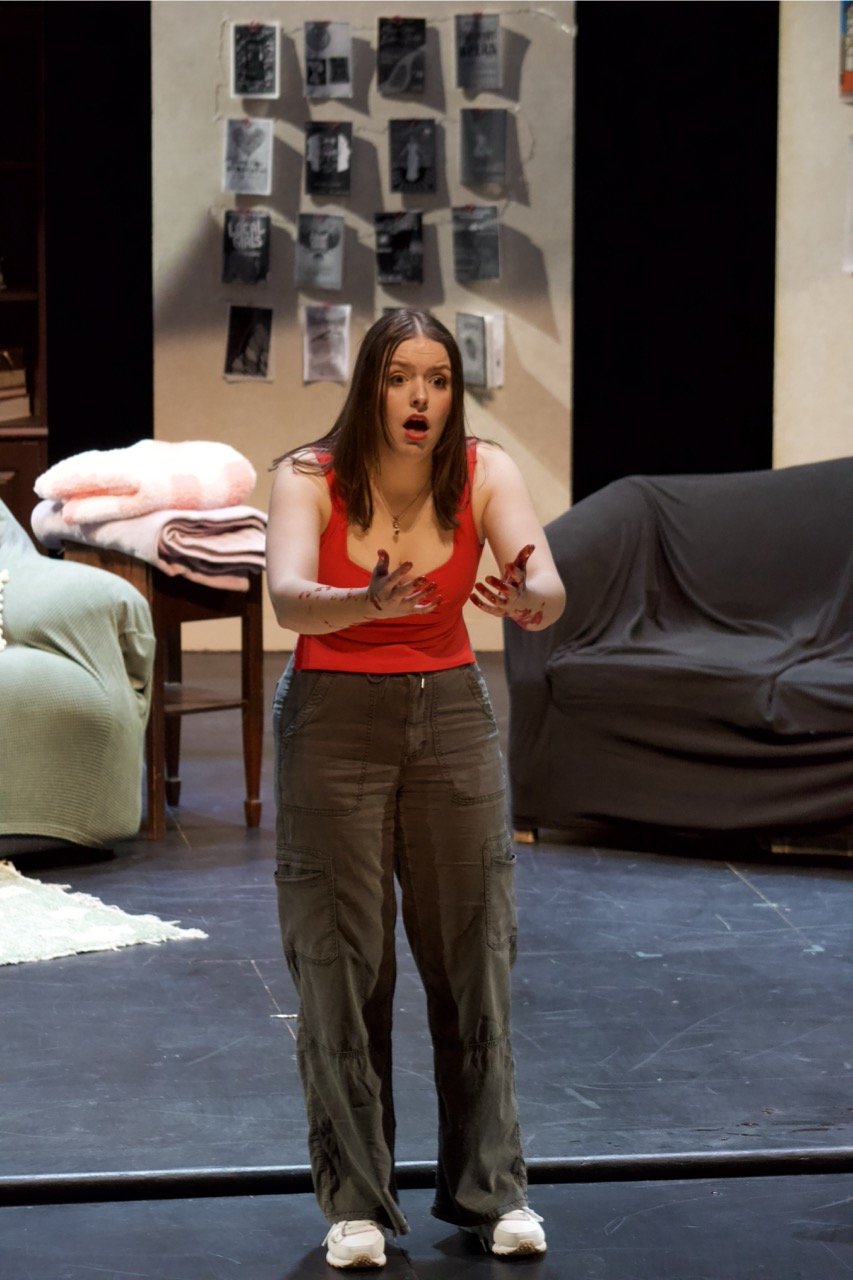
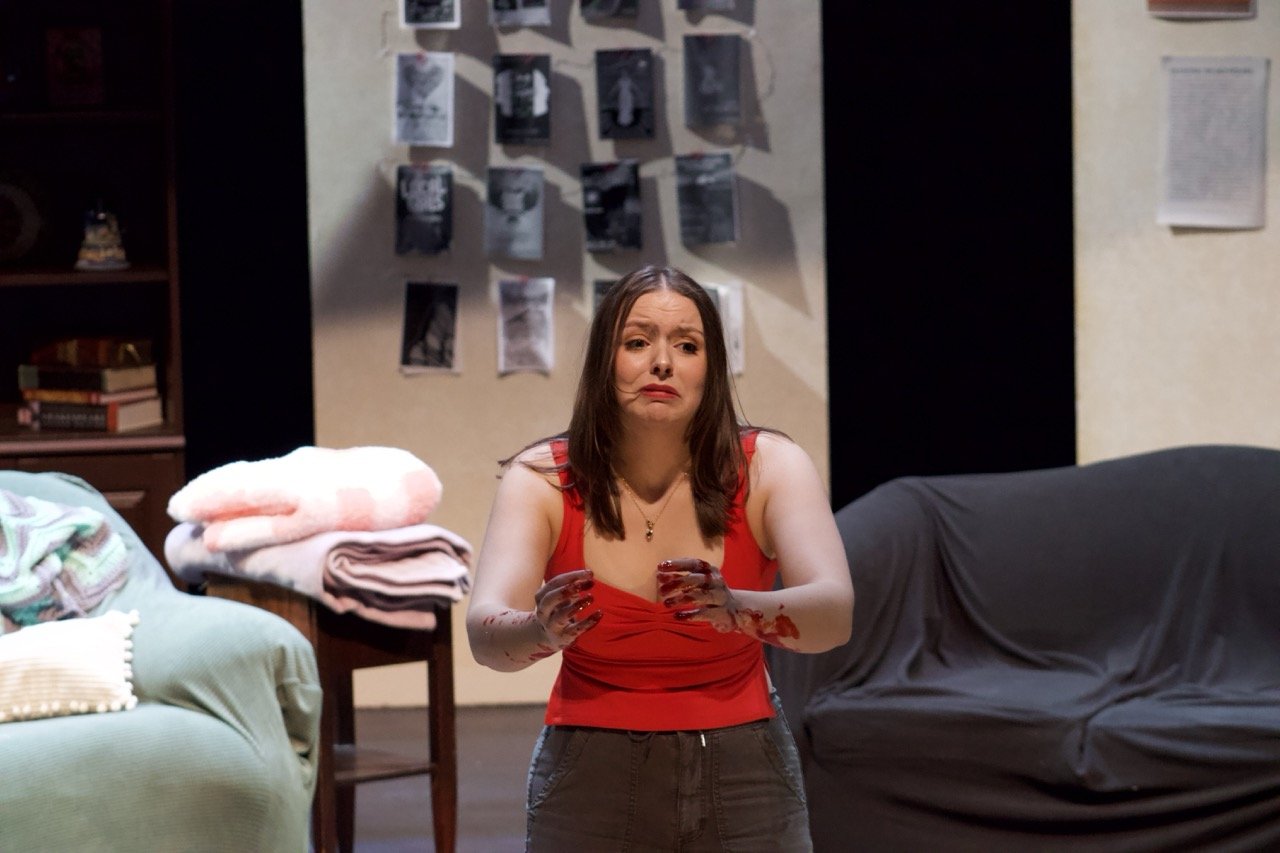
“Has to be fucking studied.”
“That shit was elite.”
“INSANE.”
“I was on the edge of my chair the whole time.”
“The best show of the semester.”
“The best play I've ever seen, I might see it again!”
“Has to be fucking studied.” “That shit was elite.” “INSANE.” “I was on the edge of my chair the whole time.” “The best show of the semester.” “The best play I've ever seen, I might see it again!”
"Perfectly cast."
"I was shaking at the end."
"I left having truly some of the best laughs and cries!"
"So real."
"The pacing was perfect."
"One of the best productions I've ever seen."
"Perfectly cast." "I was shaking at the end." "I left having truly some of the best laughs and cries!" "So real." "The pacing was perfect." "One of the best productions I've ever seen."
“Macbitches is a play full of questions. Is it possible to achieve liberation, body positivity, and self love in an industry that fundamentally judges looks and thrives off of unrealistic bodies and beauty standards? How do we negotiate the desire for ‘chemistry’ alongside new standards of carefully crafted intimacy directing? How can actors possibly act sustainably when they are encouraged to exploit their personal experiences and traumas for a more ‘authentic’ performance? What do we do when talented actors are terrible people, and why is the answer so often to excuse it at the expense of the safety of the people around them? What kind of relationship crosses the line when boundaries between personal and professional are so unstable in this inherently emotional field? Can a PWI ever really present an antiracist season? Should our professors prepare us for the harshness of the industry, or help us to dismantle it? How can we possibly be working towards feminism when the whole classical canon is rife with misogyny and erasure of women’s stories? These characters and the play ask all of these questions without being able to come to an answer on any of them. What I know for certain is that the theatre industry is still ruled by hierarchies, elitism, and white men that benefit from the labor of marginalized, overworked, desperate actors.
Throughout the evening, the conversations that these young actresses are having reveal uncomfortable truths about the nature of the theatre industry and training programs just like the one we find ourselves in at Muhlenberg. While many of the things they say are problematic, offensive, and hard to watch, I believe that none of the characters in Macbitches are bad people. They are products of their industry and their training program. Even in their most unlikable moments, even when they say the most problematic things, these young women are just parroting the mindsets they’ve been taught to have by the men in power at their institution. We’re lucky that organizations and people like We See You White American Theatre, Howlround, Nicole Brewer, Kaja Dunn, Intimacy Directors and Choreographers, and Theatrical Intimacy Education– and plays like Macbitches– are starting a dialogue and giving us the tools to unlearn whatever unhealthy attitudes we may have been taught.
Macbitches gives us the opportunity to articulate how our education, our art form, and our industry shapes us as people and how we treat others, and to challenge status quo, hierarchical, and exploitative methods of theatremaking. It’s also really funny. Enjoy the show.”
— Director’s Note
